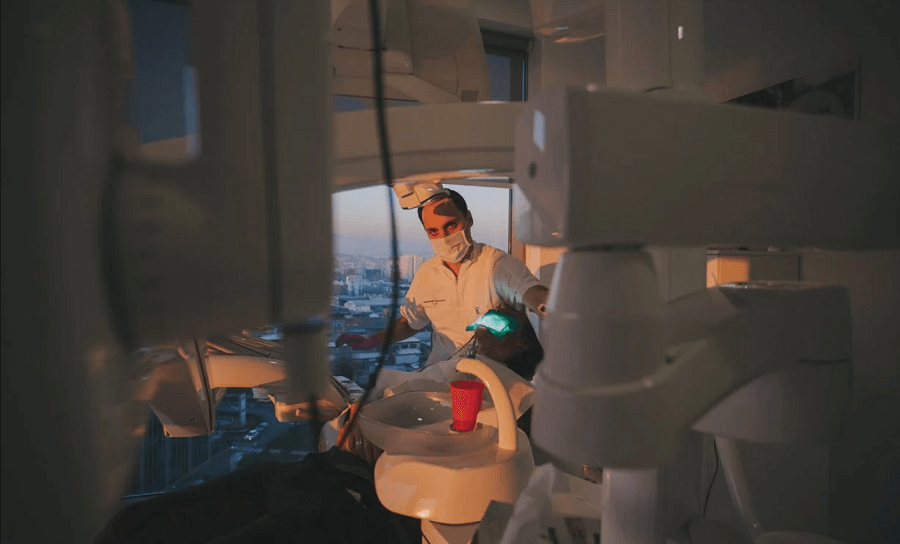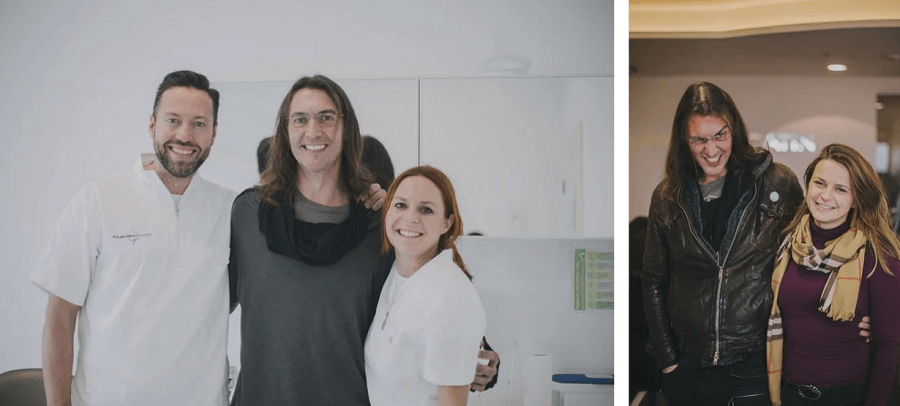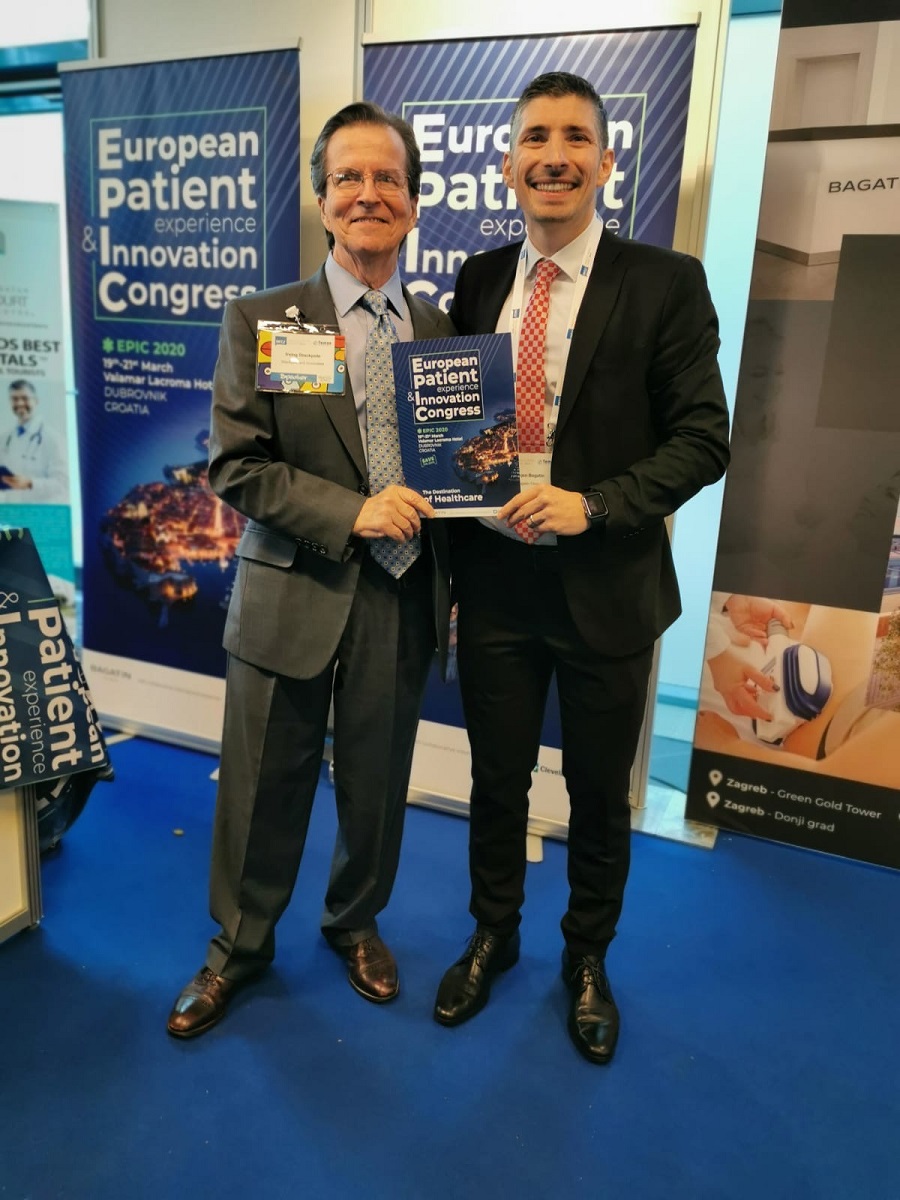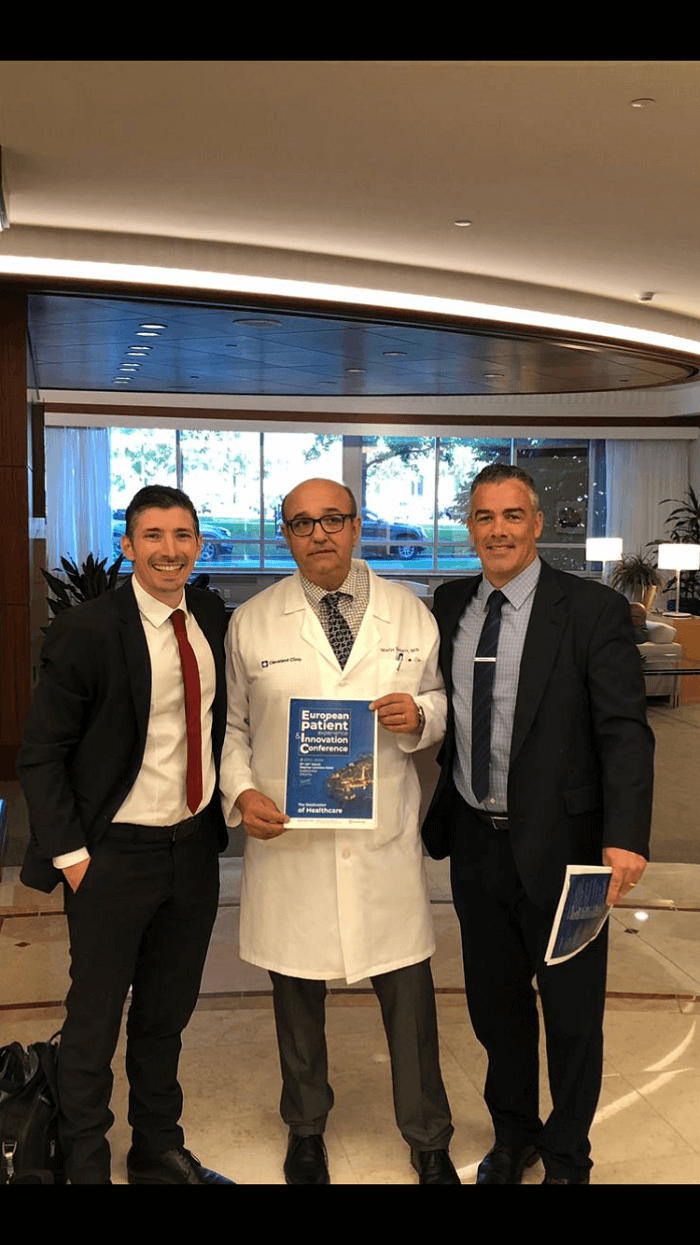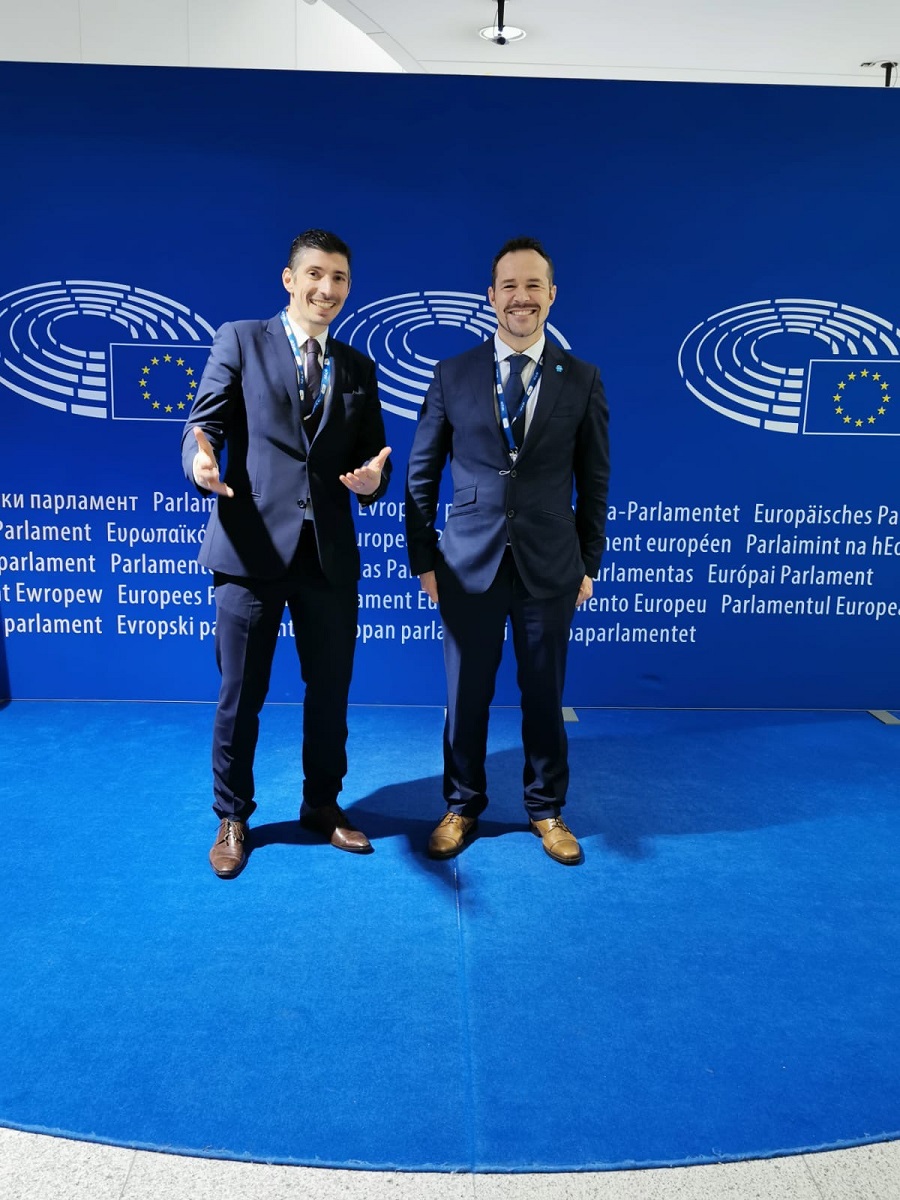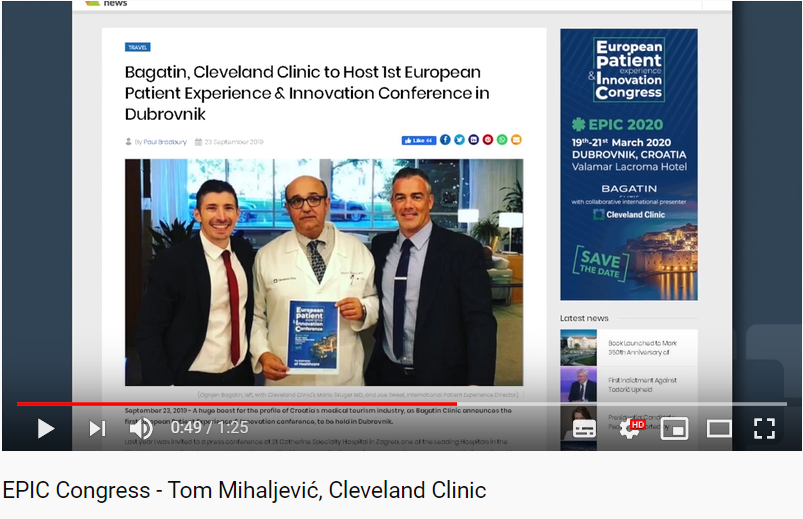EPIC 2020 in Dubrovnik Postponed as Bagatin, Cleveland Clinic Choose Caution
Dubrovnik, Croatia, March 5, 2020 - EPIC 2020. Europe's first patient experience and innovation congress has been postponed as a precaution due to the coronavirus.
It was - and will be - one of the best health tourism conferences on the calendar, with an A-list set of speakers due to appear in Dubrovnik from the very top of the healthcare industry. Collaborative international presenter Cleveland Clinic, one of the biggest names in healthcare, had no less than 5 speakers heading to Croatia, Mayo Clinic had three, with other speakers including senior representatives from the Disney Institute, Cisco and the editor of International Medical Travel Journal.
It is a conference which will take place, but now at a later date than the planned March 19-21 gathering, after organisers Bagatin Clinic and Cleveland Clinic made the difficult but sensible decision not to attend due to the current coronavirus situation. The organisers have sensibly decided that the health and well-being of their delegates, sponsors, speakers and attendees is their first priority, and they would prefer to wait for a later date when everyone can travel safely and confidently, without any challenges or risks.
Ognjen Bagatin, CEO of Bagatin Clinic, announced the decision on his social media:
Given the current world situation regarding the coronavirus epidemic, the 1st EPIC - European Patient experience & Innovation Congress, scheduled to take place in Dubrovnik March 19-21, coorganized by the GCR - Global Clinic Rating, Irving Stackpole, Poliklinika Bagatin and our collaborative international presenters from Cleveland Clinic is being postponed to a later date.
I'm very sad to announce this, but the health and well-being of our partners, sponsors and speakers are our priority and we would rather wait for a later date, when we can all travel peacefully, safely and without any fears or worries ?
I would like to thank the whole EPIC team, all the health professionals, our speakers and collaborators for their hard work and effort over the last few months – I am sure it will all pay off, just with a little delay!
This is just a small obstacle in our way, from which I am sure we will emerge stronger and that in the very near future, the first EPIC - European Patient Experience & Innovation Congress, will be a great success.
The coronavirus has appeared in Croatia, eleven cases in all (all of which are mild), but they are away from the main tourist hot spots such as Dubrovnik, Split, Rovinj and the islands.
The decision to stage EPIC 2020 in Dubrovnik was the latest statement from the Croatian medical tourism industry of its rising visibility on the international market. Many industry experts agree that Croatia has the potential to be among the top ten medical tourism providers in the world within ten years, and EPIC 2020 is one of the first major medical tourism conferences to bring the industry's finest minds to learn more about Croatia's potential.
EPIC 2020 is organised by Bagatin Clinic, with collaborative international partner, Cleveland Clinic. The unlikely partnership of such a global name and a small Croatian clinic which only started operations in one room 12 years ago is testament to the determination and quality of Bagatin's team - the clinic was voted Best International Cosmetic Surgery Clinic 2019 at the annual International Medical Travel Journal awards in Berlin last December.
For more information about EPIC 2020, including updates on the rescheduled date, visit the official website.
For the latest in the Croatian medical tourism story, follow the dedicated TCN section.
Zagreb, the New Affordable Medical Tourism Hot Spot and Holiday Experience
February 6, 2020 - The Zagreb medical tourism story is gathering pace, with a surprising amount of world-class healthcare options to choose from, and savings to more than pay for the flight and holiday.
What is the best tourism promotion story you know about Croatia?
Is it an unforgettable holiday on an idyllic island? A fortnight on that perfect beach, or a tour into the wondrous and often undiscovered world of Croatian history and heritage?
Having followed Croatian tourism for almost a decade, I can think of no better promotion story about Croatian tourism than the one about the American who came to Zagreb in December to fix his teeth.
Yes, that's right, an American flying halfway across the world in the dead of winter, to a Croatian city far from the coast, to visit a dentist.
Carl's teeth were so bad that they had long ago affected his personality, turning into a shy and retiring 40-year-old totally lacking in confidence. His basic health insurance meant that a proper fix was unaffordable, and it was only a matter of time before he would lose his teeth altogether.
To cut a long story short - but I really do encourage you to read the original version and enjoy some great photography as well - a friend stepped in to transform his mouth, as well as his life, by sourcing, crowdfunding and accompanying Carl on his first trip outside the United States, to a city in Europe whose high-quality and affordable private dental care has transformed Carl's life and personality.
An unforgettable 19-day trip from the US to Zagreb via Sweden coincided with the internationally acclaimed Advent in Zagreb, which offered Carl and his companion an outstanding tourism experience in a safe European city with excellent English spoken. And with savings of some US$35,000 on the cost of similar treatment back home, even after all the travel costs were factored in, this was truly the trip of a lifetime.
Zagreb, a top medical tourism destination.
Really?
Yes, really, and it appears that dental services are a small part of the quality on offer. Back in 2018, no less than THREE Zagreb clinics were named in the best 6 English-speaking dermatology clinics in all Europe.
At the recent International Medical Travel Journal Awards in Berlin, a Zagreb clinic was voted International Cosmetic Surgery Clinic 2019 by 20 independent expert judges. Zagreb's outstanding eye surgery expertise has attracted the likes of actor Tim Roth and Ivana Trump, the ex-wife of the current US President. A Leading Hospital of the World in Zagreb was the first location in all Europe to offer the revolutionary new pharmacogenetic test, which was co-developed by Mayo Clinic.
Ground-breaking stem cell research and services, oncology, orthopaedics, cardiology – the list of top-quality Zagreb medical services available goes on, and you can find out more about the clinics and hospitals offering them here, as well as an overview of the Zagreb health tourism scene in the video below:
While the savings are rarely as spectacular as in Carl's case, above, price is one factor in the mix that makes Zagreb such an attractive medical tourism proposition. Prices for services are typically at least 25% cheaper than in Western Europe, often much more than that. With the high cost of dental care in the UK, for example, dental treatment in Zagreb often works out cheaper than back home, including flights, and you get a free holiday in addition to that smile. How cool is that!
And tourism is one of the many, many additional reasons why Zagreb is such an attractive destination for health tourism. While the surgery may be the main reason for travel, the chance to have a great experience and place to relax and recuperate is incredibly important as well. And there are few places to beat Croatian in that regard, a country which last year welcomed more than 20 million tourists, and whose diverse tourism offer ranges from the stunning Adriatic coast and UNESCO heritage, to breathtaking continental Croatia and a diverse food and wine regional offer that rivals the very best gourmet experiences in Europe. Where else in Europe can you undergo surgery in the morning and be on an idyllic Adriatic island to recover in the afternoon.
An important factor in Zagreb's health tourism offer is the availability of wellness and spa services, which are abundant and affordable. Croatia actually boasts the oldest organised tourism in Europe, with the founding on the Hvar Health Society back in 1868, as the temperate climate of Croatia's premier island attracted the sick and infirm Austro-Hungarian aristocracy to 'the Austrian Madeira' to recuperate. And while a combination of Zagreb surgery and coastal recuperation is appealing, there are also many other options much closer to home, with several spa resorts in the region within an hour's drive from the capital.
But why leave Zagreb at all! Here is a vibrant European capital which is quickly developing into one of the must-sees of Central Europe, so much so that Lonely Planet recently named it the best destination in Europe. A year-round tourist city these days, as Carl found out during his December stay and Advent in Zagreb.
There are, of course, many other considerations to think about when looking at medical procedures abroad. Affordability of care is a significant one, and Zagreb is competitive on that score. But so too is the affordability of the destination if one is to stay for a longer time to recuperate, or even to enjoy a holiday. Here, too, Zagreb fares well.
Accessibility is another key factor, and the new 330-million-euro terminal at Zagreb Airport has raised the city's profile, as well as now hosting flights from literally all over the world through the networks of global players such as Qatar Airways, Emirates and Turkish Airlines. Bus, rail and road connections are excellent for those planning to visit by land.
English is widely spoken (Croatia was recently named the second-best English-speaking country in Central and Eastern Europe, and German is also spoken by many. Croatia is one of the safest countries in Europe, and many visitors comment on how safe it is to walk the streets of Zagreb, even at night.
So the next time you need to get some medical treatment, why not treat yourself to a holiday into the bargain. You may find it cheaper, you will certainly find it more exciting, and who knows – perhaps Zagreb will also provide you with a life-changing experience such as Carl's..
To follow the latest in the Croatian medical tourism story, check out the dedicated TCN section.
Croatian Medical Tourism's Mr Positive Ognjen Bagatin on EPIC and Patient Experience
February 3, 2020 - Croatia will be hosting the first European Patient Experience and Innovation Congress (EPIC 2020) in Dubrovnik 2020. Meet the man behind the project, Ognjen Bagatin from Bagatin Clinic in Zagreb and Split.
He is the dynamic pioneer of Croatian medical tourism, a man determined to learn from the best and introduce the best to health tourism in Croatia. Which is how Dubrovnik came to be home to the first-ever European Patient Experience and Innovation Congress, taking place in Dubrovnik from March 19 - 21. TCN caught up with Ognjen Bagatin, the charismatic CEO of International Cosmetic Surgery Clinic of the Year 2019, Bagatin Clinic.
EPIC is the first patient experience and innovation congress in Europe. Tell us firstly what you mean by the term 'patient experience' and why does it merit its own conference?
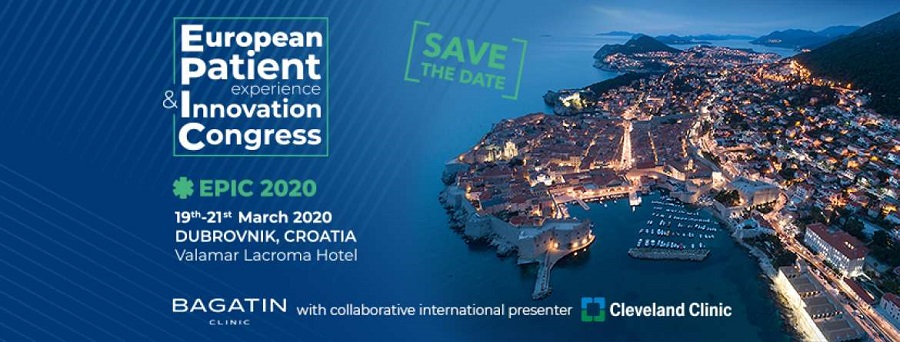
Thank you for a great question. The goal of the „Patient experience“ is to put the focus on the patient-first approach, and the main goal is to get better medical outcomes and to measure them. It is important that all decisions we have in healthcare are looked through the eyes of the patient, and this is something that everybody in healthcare agrees on, and understands. If you place the focus on patients and patient-first approach, we will make better decisions and bring value to patients in all our health systems.
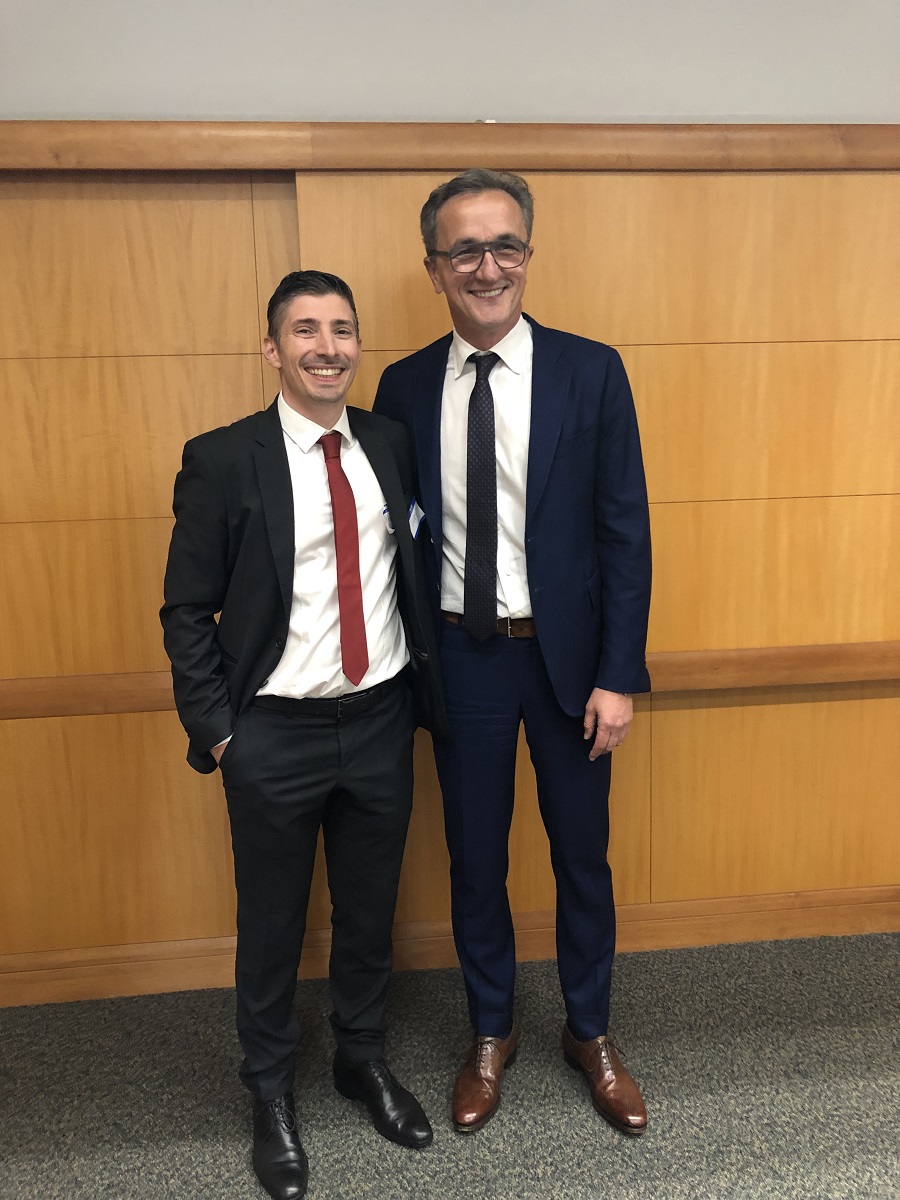
(Ognjen Bagatin with Cleveland Clinic CEO Tom Mihaljevic)
With the digital transformation being so instrumental in healthcare, we wanted to bring all the best innovation that make patient experience better and with that better outcomes for the patients and less cost for health systems in the long run. Cleveland Clinic is a pioneer of Patient Experience, and they were one of the first who opened an office of patient experience in their clinic, even assigning a CXO (Chief Experience Officer). But this is not all, they are sharing that if you want to improve the patient experience, first you need to improve the medical staff experience. You can’t have a great patient experience without having a great medical staff experience.
This should not be just once a year congress, this should be a way of life for health in Europe. A continuous improvement in patient experience every day of the year, and we wanted to bring best of the best to help us with that.
(Ognjen Bagatin with co-organiser Irving Stackpole - read Irving's epic EPIC interview with TCN here)
Tell us how this conference came about, as it has some interesting organizers - the best hospital in the world (Cleveland Clinic), a top medical tourism consultancy (Stackpole & Associates), and a clinic in Zagreb (Bagatin Clinic). Where did the idea come from, and how did you all fall into cooperation?
At Bagatin Clinic we always think about how to provide the best service to our patients and our clients, and the idea came to me when I was in Australia a few years ago visiting few top-notch hospitals to see what they are doing in this field. It led me to HSS hospital in Sydney where they had a huge sign saying „PATIENT FIRST“ in every room, to remind the staff who is the most important VIP person in the hospital.
I consider that is a great way to make your mission short and sweet and I asked people in the hospital if they came up with this or they saw it somewhere else? They said one of their top surgeons had worked in Cleveland Clinic and he transferred the culture to their hospital. So I went to Cleveland Clinic to experience this culture and the rest is history.
(Ognjen Bagatin with Team Cleveland - Mario Škugor and Joe Sweet)
I had a great support there from Mario Škugor, the endocrinologist from Cleveland Clinic who introduced me to the CEO of Cleveland Clinic, Tomislav Mihaljevic MD, and Joe Sweet from the international office of Patient experience. Since Cleveland Clinic is opening their first-ever European clinic in London, near Buckingham Palace, in 2021, they also wanted to spread the Cleveland way of healthcare approach in Europe, and we decided to do this amazing congress after 2 years of preparation. We have an amazing announcement of Tom Mihaljevic for this Congress that have been seen by thousands of Healthcare professionals all around Europe:
To make it more professional, and on a higher level, we approached Irving Stackpole (top-level medical tourism and healthcare consultant) and Daniel C. Shaw (a leader from Global Rating Clinic, an amazing accreditation and reputation building organization) to join us to make a great impact on European Health systems and shift the epicenter of innovations in healthcare from US to Europe and with this to lift the medical outcomes results in our health systems. We as a team, together with Cleveland Clinic champions Mario Škugor and Joe Sweet, and Bojan Pintaric (executive director in Bagatin Clinic) and Sara Bukic (EPIC project leader) have formed a team who can really make a difference. We are very excited and can’t wait for the Congress to start.
Who should come, why, and what will they get from the conference?
Great question. The European Patient Experience and Innovation Congress will be a high energy, stimulating event for everyone, from C -Suite executives, to clinical practitioners, clinic owners, scientists and investors. EPIC brings together some of the most influential physicians, MedTech startups and health professionals from Europe & beyond to the table to improve how your patients will experience healthcare in the near future. As technology continues to help us achieve previously unattainable results in healthcare, join us for an insiders' look at which technologies, ideas & innovations are improving the patient experience with some of the leading clinics & healthcare companies of the world so that you can stay ahead.
(Ognjen Bagatin with co-organiser Daniel Coulton Shaw. Read Daniel's TCN interview for EPIC here)
We will explore:
- • The design of systems to improve patient experience
- • The role of science, artificial intelligence and big data
- • Investment opportunities
- • Bedside and interpersonal methods to improve patient care
- • Mobile and personal care apps
- • The “future” of healthcare
And you will have an opportunity to be a part of a boutique event with some of the giants of healthcare like Cleveland and Mayo Clinic, and many, many more as well. At the moment we have attendees from 22 countries in the world (17 from Europe) and the number is increasing every day.
Just looking at the list of speakers already assembled and with more to be confirmed, it looks like a medical tourism A-list - Cleveland Clinic, Mayo Clinic, Disney Institute, World Bank, the editor of IMTJ, as well as renowned Croatian experts such as Dragan Primorac from St. Catherine Specialty Hospital and Nikica Gabrić from Svjetlost. Tell us more.
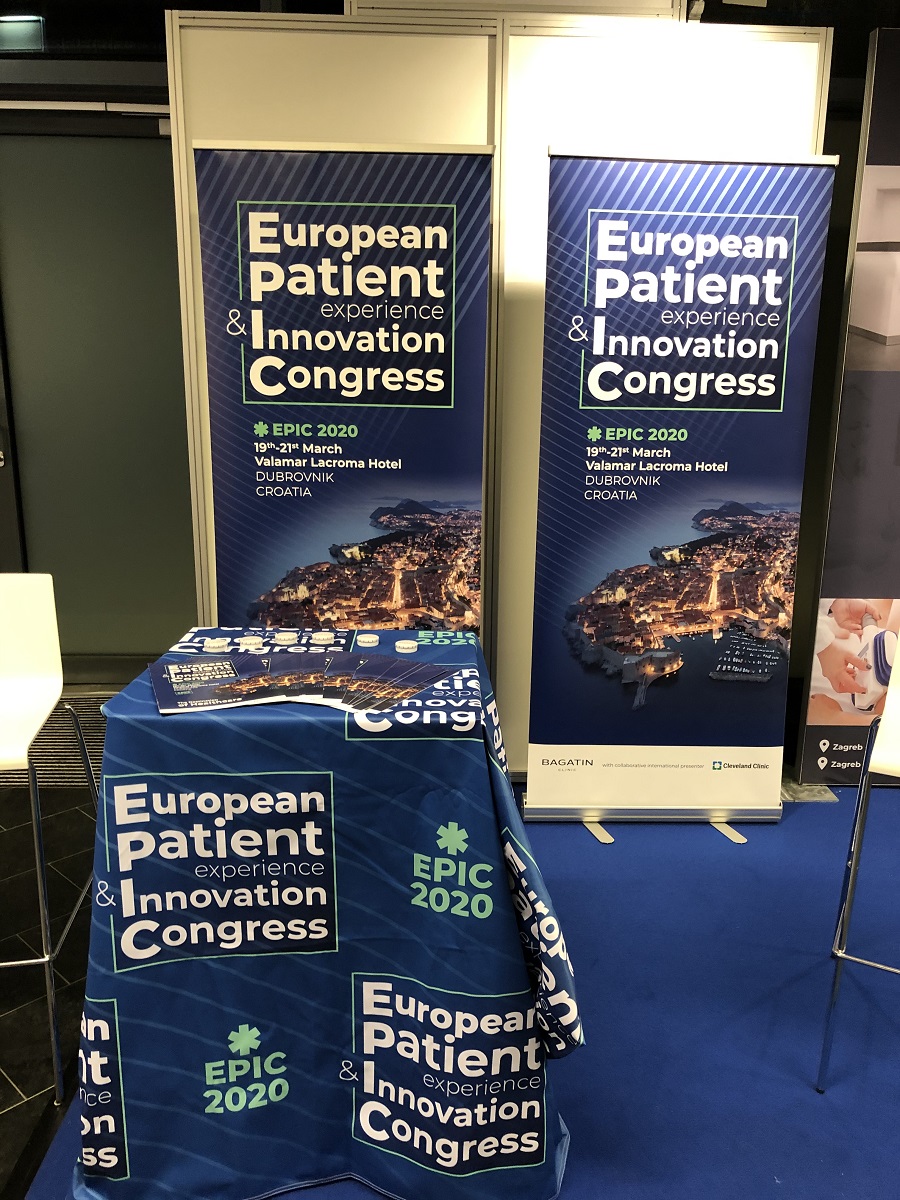
I could talk all day about them, the organizational team has done a really amazing job of bringing to one event an incredible set of speakers from all over the world. The names of some of our keynote speakers are:
- Francis Papay, MD, a plastic surgeon from Cleveland Clinic, who did the first face transplantation with his team in North America – a fantastic story.
- Beata Kurucz, EIT (EIT Health), and they stimulate start-ups to bring innovation to life while building a globally competitive European healthcare industry.
- Stephan Bender from Disney institute – who will share with us how a hospital would look like if it was run by Disney, a top hospitality brand in the World
- Ivan Duggan from Cisco, an innovator who will share with us how the future will look like
- Rahul Kashyap, MD, Mayo Clinic innovator and clinician, He is an award-winning public speaker. He has received awards for exemplary research, quality improvement and leadership
- Dragan Primorac, MD, St. Catherine Hospital – who will share his futuristic view of personalized medicine and St. Catherine`s cooperation with Mayo Clinic and so on.
- Nikica Gabrić, MD, Svjetlost Eye Hospital, who will share how to make your clinic/hospital so popular that American Celebrity Movie Stars visit them and refer their friends to his 9 clinics in the region
- Karin Jay from Planetree, relationship-centered model of care and international certification criteria
- Paul O'Brien, a famous London Clinic chef and many many many more.
The Congress will also have a „shark tank – start-up contest“ on Saturday (March 21st) with teams from all over Europe.
Why Dubrovnik?
Dubrovnik is a spectacular location and a great city to host this kind of event, with lots of history and a place that is on everybody`s bucket list. A city with an amazing history.
Also, because it has a connection with healthcare and some fun TIPS:
The home of EPIC 2020 - the city of Dubrovnik, developed on the east coast of the Adriatic, becoming an EPIC trading and maritime power, especially from the 14th century onwards. Although the city was economically developed, maritime trade with the East and the hinterland brought on a high risk of epidemics of various diseases. In order to preserve its commercial prosperity, identity and existence, Dubrovnik introduced various preventive medicine measures, the most famous of which is the invention of quarantine! By introducing regulations relating to hygiene and medicine in order to protect the health of its population and ensure the status of a powerful trading force it had at the time, it was ranked among the most developed European cities, while maintaining the distinctiveness of its medicine.
Another EPIC fun fact is the first pharmacy in Croatia, and the 3rd in Europe was in Dubrovnik. During the Middle Ages, the city was surrounded by gardens full of aromatic herbs, hence was the idea was born of founding laboratories for making medical preparations used to heal the minds and bodies of those in need!
P.S. Anyone who is a Game of Thrones fan wouldn’t want to miss the opportunity to visit King’s Landing!
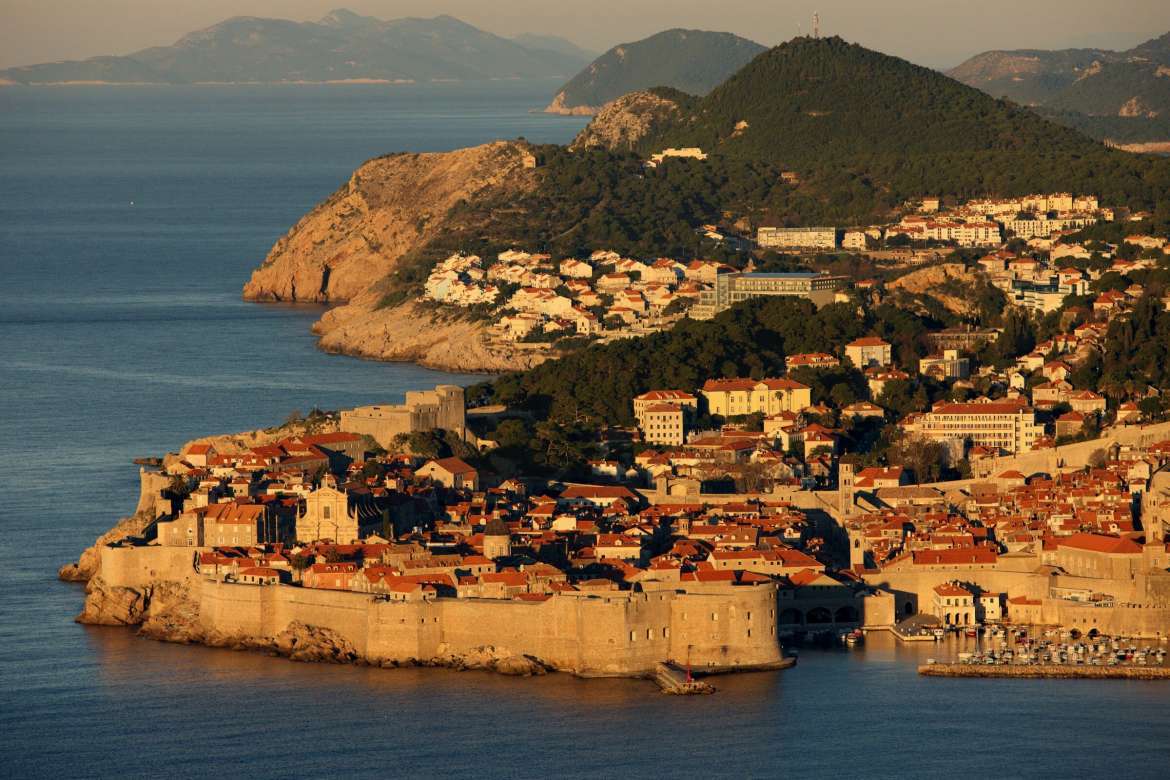
(Photo by Romulic & Stojcic)
Innovation and technology are obviously playing a key role in the development of the medical tourism industry. What trends in particular excite you the most, and what are you looking forward to at EPIC?
Yes, you are right, innovation and technology are really influencing the way we communicate with our patients, but also how we follow up on them and how we create trust and relationship with them. This is where innovation and technology kick in the most, and at EPIC we will have an opportunity to hear about amazing innovations that are used by some of the world’s giants in healthcare, but also about niche innovation that can really make a difference in the future for the patients themselves and the patient experience. I`m looking forward to listening, learning and networking with great speakers and amazing attendees from all over the world.
2019 was a great year for your own Bagatin Clinic. We last saw each other in Berlin at the IMTJ Awards, where you picked up International Cosmetic Surgery Clinic 2019, as well as TEMOS accreditation. What are your plans for 2020 and how do you see things moving in the Croatian medical tourism industry in general?
We have fantastic plans for this year, including the expansion of our clinic in Zagreb the especially dental and aesthetic medicine departments. We are starting with some new services such as hair restoration in Zagreb and Split (which is very popular among medical tourists), we will be present as speakers or partners on more than 15 different conferences and summits outside of Croatia, and will probably open one more satellite outside of Zagreb and Split (this I will share soon).
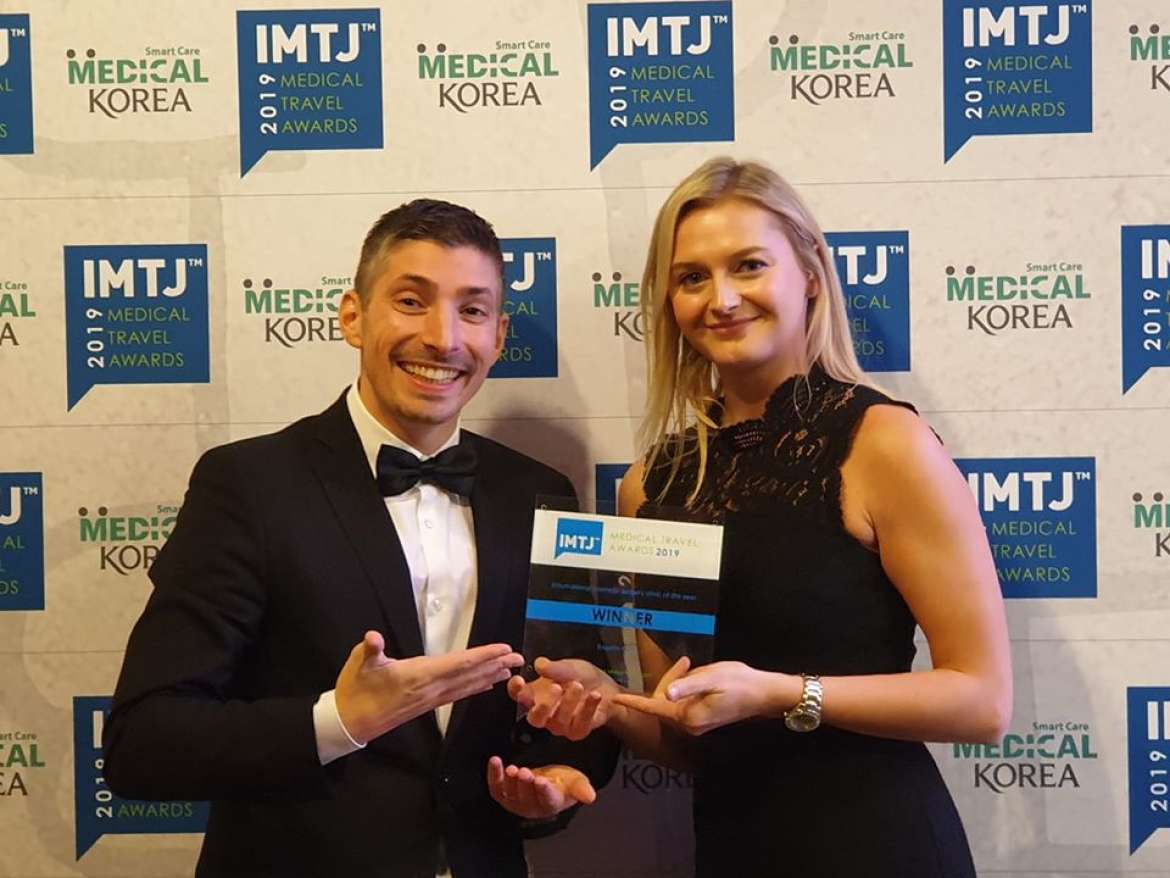
(Ognjen Bagatin at the IMTJ awards in Berlin, where Bagatin Clinic was named International Cosmetic Surgery Clinic of the Year 2019)
We are continuing with our digital transformation and will open our webshop in February, continue to work on paperless clinic and use technology to save our staff's to put an even better focus on our clients, and are in the process of developing our own app for our clients that will help to increase their patient experience with Bagatin. We are going to continue our cooperation with Cleveland clinic, and try to work more closely with other Croatian clinics and service providers so we can have a bigger impact on international markets. We have so many open projects at this moment, but let’s talk about it when we finish some of them?
To learn more about EPIC 2020, visit the official website.
For the latest from the Croatian medical tourism industry, follow the dedicated TCN section.
Total Croatia News is an official media partner of EPIC 2020.
Daniel Coulton Shaw on the Patient Experience at EPIC 2020 in Dubrovnik
January 29, 2020 - The first European Patient Experience and Innovation Congress will take place in Dubrovnik from March 19-21. TCN catches up with co-organiser, Daniel Coulton Shaw from Global Clinic Rating to find out more.
1. The term 'patient experience' is something relatively new in terms of medical tourism conference themes. Tell us what you mean by it, and why people will be hearing a lot more about it in the future.
Wikipedia states that Patient experience (PX) is defined as the sum of all interactions, shaped by #healthcareorganization culture, that influence #patient perceptions across the continuum of care.
For me, in my own clinic and the clinics I consult for, I look at patient experience (PX) as simply "everything we say & do". No matter if we are a single doctor, a private medical practice, medical clinic or speciality hospital, a patient experience always occurs, and it's something we can usually influence directly.
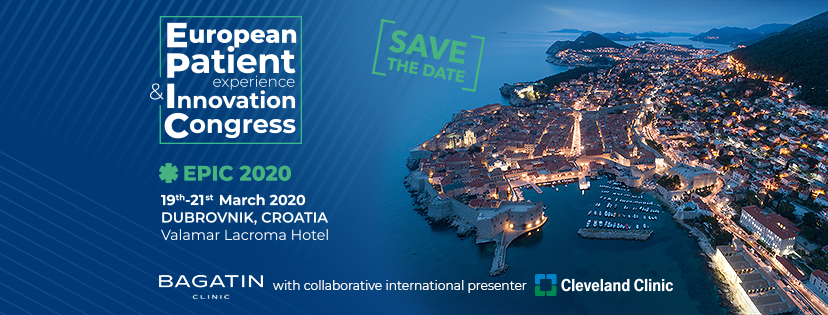
2. How did you get involved in organising EPIC and what will you be talking about in your presentation?
A Croatian healthcare entrepreneur called Ognjen Bagatin invited me to be part of the organising committee along with Irving Stackpole, both of whom I respect greatly for their impact on the medical travel market both in Croatia and beyond. Both of them not only work in healthcare make a profit, but are truly focused on improving healthcare for all, not just their clients. I share that passion and am honoured to work with them to have the chance to bring lasting improvements to the provision of healthcare with central Europe and beyond.
With all the experienced healthcare companies and presenters sharing technological advances brought to us by the digital age, I'm going to cover a part of patient experience beyond that, and that is building and excellent patient experience through empathy.
I'll be taking participants on a journey through a patient experience map - how to notice, measure and improve on what a patient sees, hears, thinks & feels, says and does. Going beyond the bottom line, and building medical centres of excellence on patient empathy. I'm excited!
3. You have a great personal story of initially helping a dentist do a website in Bratislava, which mushroomed into your GCR business today, and now you have a very good understanding of clinics in Central and Eastern Europe. Which countries are performing best in terms of paying attention to detail in the patient experience, and tell us about any individual examples of excellence?
It's hard to single out individual countries that are "performing well" inpatient experience, as it is to find a country that has the best customer experience in coffee shops. Starbucks do a great job of systematising the coffee drinking experience, but it's hard to beat that little Italian "cafeteria" in a forgotten corner of the country where the barista strokes your dog, asks about your leg and moves your chair so that you can get a bit of sun on your face between the trees.
It's similar in healthcare facilities. I believe that countries such as Finland, Australia, the Nederlands, the US and Japan have made great strides in building systems around the patient experience, but there are hidden gems everywhere I travel.
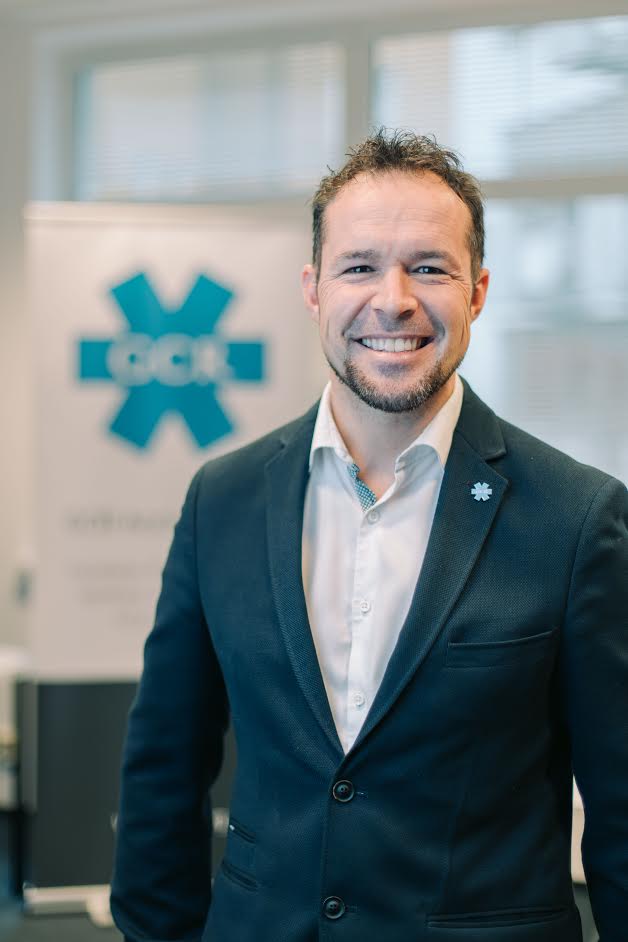
Back to that coffee example. A few months back I wrote an article on Linkedin about a fertility clinic in the Czech Republic, that hired a south American barista simply to create great coffee for their patients. But that's not all. Via social media, he contacts the patients ahead of their visits to ask them simply what do they prefer tea/coffee - black, white, sugar, no sugar. And to the patients surprise as soon as they sit down for the initial consultation with the doctor, the barista brings in their drink just the way they like it - without even asking the patient about it during their visit.
Now I can tell you that many patients who visit fertility clinics don't like to share this private treatment to often on social media - but they do share photos of their fantastic coffee experience, and that has done wonders for this fertility centre in reaching new patients.
4. Why Dubrovnik?
Dubrovnik. We'll who wouldn't want to get out of the office or hospital and go down to Dubrovnik to learn from the world's best inpatient experience. It's a hard offer to turn down.
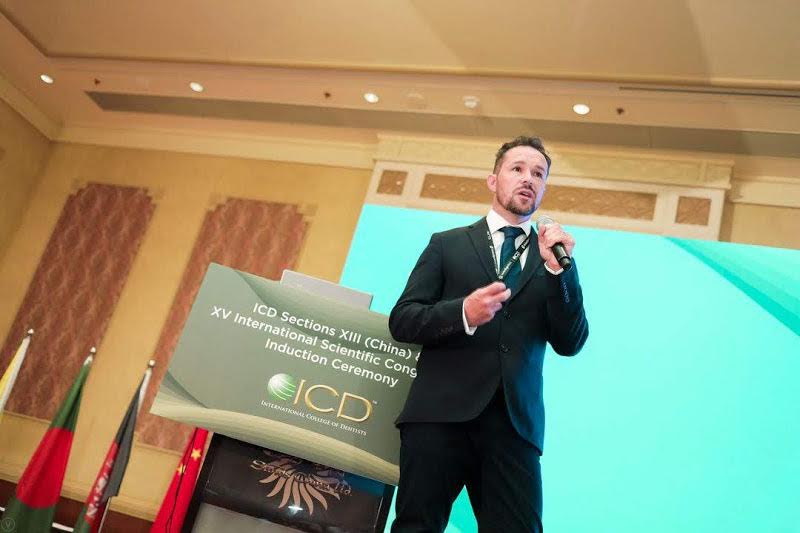
5. Technology is changing the world, and healthcare is no exception. Innovation in healthcare is a core part of EPIC. Tell us a little about this, and what aspects of innovation and technology excite you the most?
For me personally, the most exciting part of current innovation in healthcare is certainly the developments in patient choice. Instead of blindly asking grandma who's the best doctor, going to the nearest available health centre, or at least the ones that have the best marketing, patients can increasingly turn to patient-reported treatment outcomes (results), along with clinically reported treatment outcomes to judge the quality, affordability and value of individual medical centres.
6. There are some great speakers already confirmed. Give us a flavour.
I'm excited about Dave De Bronkart, who learned he had a rare and terminal cancer, he turned to a group of fellow patients online and found the medical treatment that saved his life. Now he calls on all patients to talk with one another, know their own health data, and for healthcare to listen to patients as partners in the new world of participatory medicine.
There's also Thijs De Blok from Buurtzorg, I was blown away when I learned about their self-governing teams of ten to twelve nurses providing both medical and supportive home care services. There are over 10,000 nurses in their teams now, dramatically lowering the healthcare burden in the country, with patient satisfaction scores are 30 percent above the national average 9.1 out of 10. This is no small feat, and they have since replicated similar results in Asia and beyond.
7. You are a regular and popular visitor to the Croatian medical tourism scene, and last year in an interview for TCN stated that Croatia can be a hub for medical tourism for Central Europe. Is that still your belief, and what progress has been made in the last year?
Croatia remains the leading contender within central Europe for elective healthcare. As the cost of treatment between the countries continues to level out, medical travellers are looking beyond affordability to value, quality and experience. With Croatian clinics like Bagatin, St. Catherines, Rident & Svjetlost stepping up their game this year, I believe that the other former Yugoslavian & USSR countries should not get too complacent and comfortable.
Croatia is not relying on the government to support them in reaching international patients, as many of these countries still are. It is through the hard work of the private healthcare sector, and active clusters like Kvarner Health that helping the country to rise, regardless of whether the government notices or not.
With the EU presidency in Croatia, it looks like the right place and the right time.
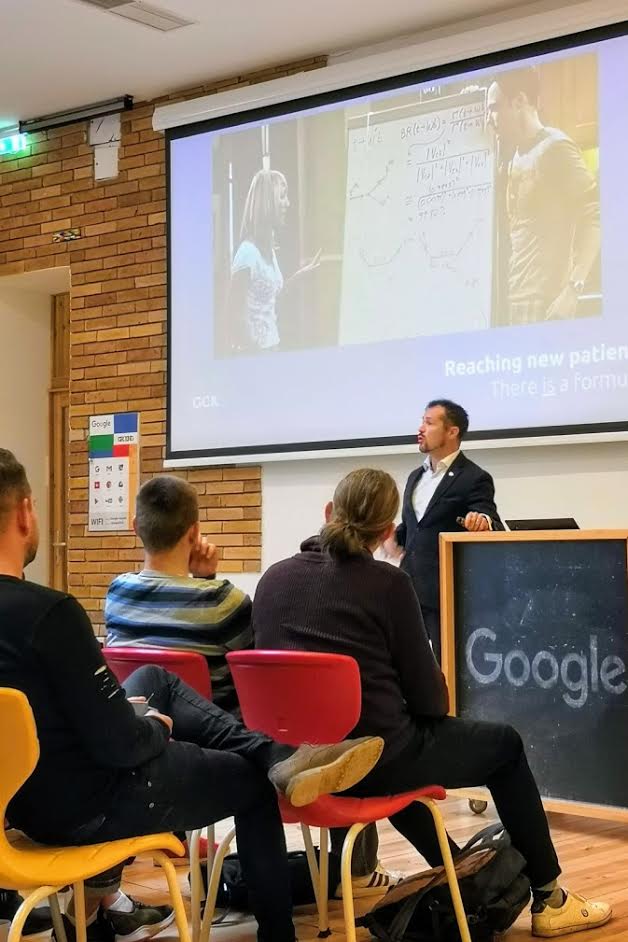
About Daniel Coulton Shaw:
Anyone who knows Daniel Coulton Shaw will tell you that he is an enthusiastic storyteller full of practical ideas that will set your head spinning. His entertaining presentations are largely inspired by the successes and failures from 152 forward-thinking international private medical organizations, health clusters, hospitals, clinics and practices across 26 countries worldwide of multiple specialities. Daniel works closely with this portfolio of leading private clinics, improving the way that these clinics & hospitals reach, book, and engage patients to increase their reputation & results. The patient innovation trends Daniel shares are always supported with insightful data & facts gained through the past 4 years as the ambassador for the GCR the Global Clinic Rating, an award-winning initiative co-founded by an employee of Google to enable both patients & healthcare professionals to compare the apparent quality of almost half a million private clinics & hospitals worldwide. When not on the road, Daniel loves to put theory into practice in the day-to-day running of a successful international dental clinic for English-speaking patients in central Europe that he co-founded back in 2007 as well as spending time “off the grid” with his family – exploring the world beyond phones & screens in the mountains, on the ocean, at great concerts, running races or serving those with limited access to education & care.
You can connect with Daniel Coulton Shaw on LinkedIn.
To learn more about EPIC 2020, visit the official website.
To follow the latest from the Croatian medical tourism industry, check out the dedicated TCN section.
St. Catherine Hospital Scientists on Pharmacogenomics and Artificial Intelligence
January 23, 2020 - A Croatian group of scientists from the St. Catherine Special Hospital participated in the publication of yet another remarkable scientific paper, this time explaining the concept of pharmacogenomics testing based on the principles of artificial intelligence.
"Pharmacogenomics" is one of the world's leading scientific publications in the field of pharmacogenomics (PGx) and their latest issue included an article titled "Pharmacogenomics at the center of precision medicine: challenges and perspective in an era of Big Data".
The authors are a group of the Croatian and American scientists, led by Professor Dragan Primorac, who propose the model of the systematic introduction of PGx testing into clinical practice. Along with that, they propose the implementation of the concept into the health systems of various countries, using Artificial Intelligence (AI) models, as well as some sub-systems within the AI framework, such as so-called Machine Learning.
Through the specific algorithms analysing the data, the patients' data is compared with all the data already deposited in large databases (using the Big Data approach), with the goal of optimising diagnostic procedures, the prevention of disease on time, and personalised treatment. Unlike the typical model of machine learning where the algorithms are defined by certain parameters based on expert knowledge, the concept of AI primarily uses the neural networks, continually evaluating a large amount of data and processing it in a similar manner to human thinking.
Pharmacogenomics analyses a whole series of genes, or even the entire genome, and then studies the connections between the genetic predisposition of an individual and their reaction to a drug. It helps understand why some people respond to some medicines while others don't, why some people need to have the doses of their medicines adjusted to get the perfect therapeutic response, and it can even warn you if a patient won't respond to therapy at all or even when someone will experience toxic side effects.
The model proposed in the paper is based on the experiences by the St. Catherine Hospital and the PGx testing it has been performing in cooperation with OneOme American company (a spin-off company of the famous Minnesotan Mayo Clinic).
The testing uses the RightMed system and analyses 25 genes at the same time (CYP1A2, CYP2B6, CYP2C9, CYP2C19, the CYP2C cluster, CYP2D6, CYP3A4, CYP3A5, CYP4F2, COMT, DPYD, DRD2, GRIK4, HLA-A, HLA-B, HTR2A, HTR2C, IFNL4, NUDT15, OPRM1, SLC6A4, SLCO1B1, TPMT, UGT1A1, VKORC1), which are responsible for the synthesis of the enzymes important for the drug's metabolism (especially the genes of the enzymatic system of cytochrome P450), transport proteins, receptors, other proteins important for the functioning of drugs, as well as those from the HLA system, which is important for the reactions of oversensitivity to medicines.
The system allows for the prediction of the response of each patient for over 300 of the most frequently used medicines, and so the patients are given the possibility to find the one which will help them best. All of the algorithms used in the system related to the use of the genetic information and the selection of the drug and its dosage are following the Clinical Pharmacogenetics Implementation Consortium
(CPIC) guidelines.
The algorithm of the analysis of genes responsible for the drug metabolism of each patient will sort them into five categories of metabolizers: slow, intermediary, normal, fast or very fast. The paper also includes a very detailed SWOT (Strength, Weakness, Opportunity, Threat) analysis of the proposed strategy, which can lead to a significant new step in the development of modern medical sciences.
The importance of the introduction of PGx methods into routine clinical practice is best confirmed by the information recently published in the leading American medical sciences journal, JAMA, in which it was said that in the US, more than 2 million hospitalized patients have serious side-effects from the drugs they were given annually, and over 100.000 of them die. Some estimate that the number is even higher today. Today, side-effects from drugs constitute the fourth cause of mortality in all populations. In the US, the health system spends 136 billion dollars a year to mitigate the damage done by the side-effects of drugs. European data shows that between 7 and 13 percent of patients get admitted into hospitals because of the side-effects of drugs, and 30 to 50 percent of patients do not respond to therapy at all.
Professor Dragan Primorac said that the "right therapy for the right patient at the right time" is the key phrase of personalized medicine, however that can't be achieved without an insight into the molecular status of the patient.
Our goal is to reduce the morbidity caused by the side-effects of drugs to the lowest possible level, as well as to integrate pharmacogenomics through the concept of AI with all the other diagnostic procedures into an integrated system which will lead to the optimisation of diagnostic and therapeutical procedures.
The proposed concept of the integration of PGx methods into clinical practice, developed by the scientists from the St. Catherine Special Hospital and the OneOme company, has attracted huge interest on the world's health market, and the first implementation of the model outside of Croatia is soon to start in German health institutions.
For more on the Croatian medical tourism story, check out the dedicated TCN section.
Irving Stackpole on the Patient Experience, Future Healthcare Trends, Epic 2020 in Dubrovnik
January 23, 2020 - Europe's first-ever patient experience and innovation congress, EPIC 2020, will take place in Dubrovnik in March. TCN catches up with co-organiser, Irving Stackpole, to learn more about this ground-breaking conference.
There are two months to go until the EPIC 2020, the first European Patient Experience and Innovation Congress in Dubrovnik, which boasts a star-studded lineup of medical tourism expert speakers and professionals, including some of the biggest names in the industry, such as Cleveland Clinic and Mayo Clinic. In terms of experience, none can match Irving Stackpole, who is not only in the industry for 48 years, but also at the cutting edge of new technologies.
With decades of experience in healthcare, Irving Stackpole is the President of Stackpole & Associates, Inc., a strategy, marketing and research firm. Irving is a mentor for the European Institute for Innovation in Health, an EU program to stimulate healthcare entrepreneurship. He edited Medical Tourism Marketing the 1st book on the subject, is the co-author of The Marketing Handbook in Health Tourism, co-hosts the podcast and many more similar activities. TCN caught up with Stackpole to learn more about why this conference is so important and innovative.
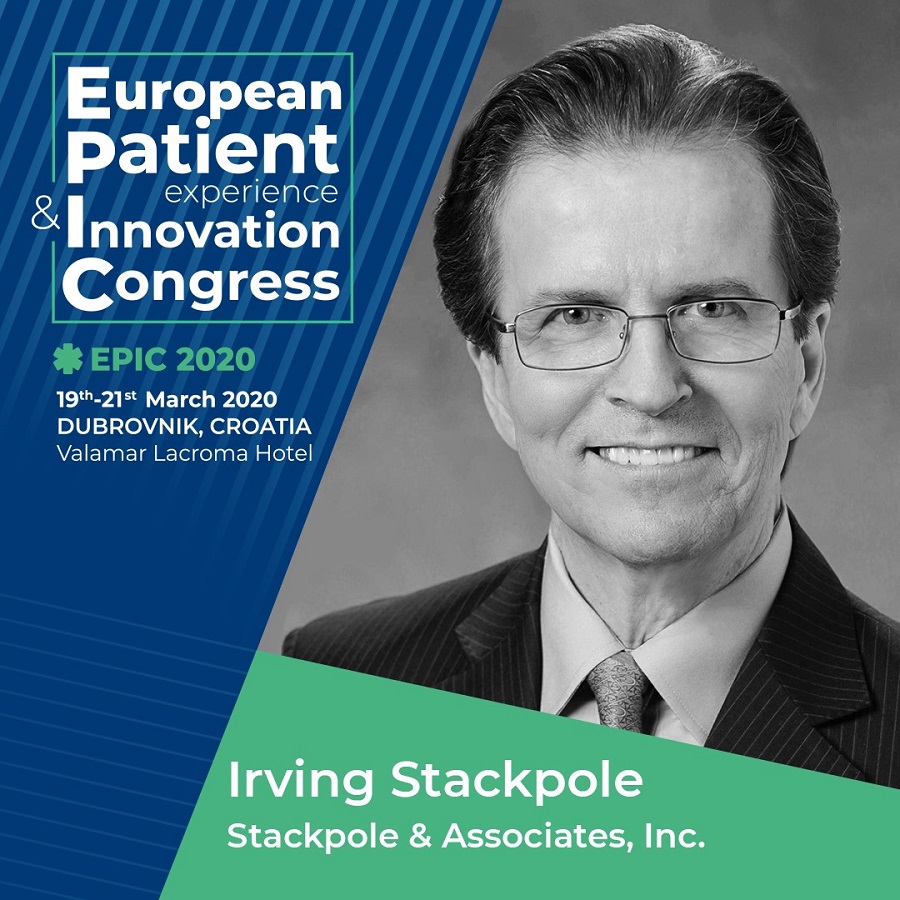
What is the Patient experience, and why is it so important?
The “patient experience” refers to the subjective perception of the interactions consumers have with their healthcare providers. This ranges from the first request or inquiry, to the aftercare follow up, and includes everything from whether the doctors’ office answered the phone well, to the clarity and accuracy of the invoice charges. Was it easy to schedule this appointment? Were the people I spoke to polite? Did I feel rushed or interrogated? Did the doctor take time to listen? Was the clinic or hospital clean and orderly? Was the outcome as I expected based on what the doctor told me? Were there any surprises in the invoice I received? All of these become part of the “patient experience”.
As it turns out, positive patient experiences may be a critical ingredient to healthier national economies!
In developed countries, healthcare is consuming greater amounts of the Gross Domestic Product (GDP), which leaves less resources for other investments like R&D, infrastructure, pensions and others. In developing economies, the struggle for investment priorities creates political tensions. So, making healthcare more effective is not only just the right thing to do, greater healthcare efficiency is a national priority. And one of the factors that has emerged from research in America, UK and Australia is that healthcare consumers who are more engaged in their care, more involved, have better outcomes and report higher levels of satisfaction with their care.
The focus on the consumer, or patient, experience is also a reflection of the changing relationship between consumers (“patients”) and providers. Patients are no longer “patient” with arrogant doctors who expect compliance and passive, complete acceptance. Many consumers arrive at their appointments with having researched symptoms and options, loaded with questions and even suggestions. This completely turns the patient / provider relationship on its ear.
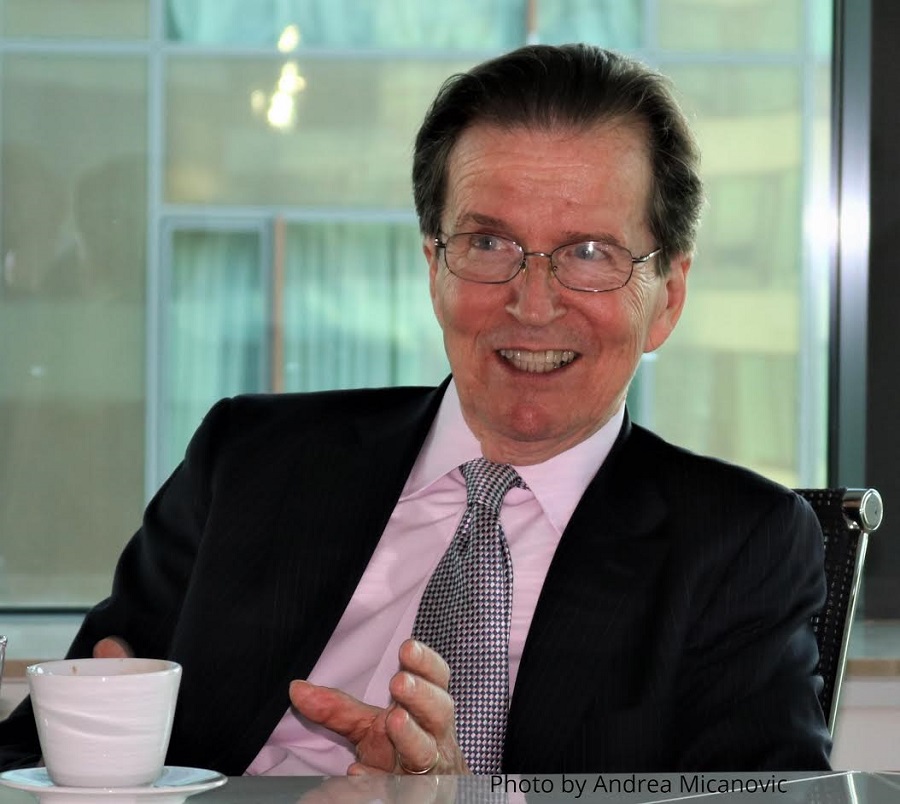
You recently gave a presentation in Berlin entitled 'The Future of Healthcare is in Your Hand.' What do you mean by that?
Healthcare consumers are progressively choosing to explore, engage and communicate with providers via their mobile devices. After all, if I can get everything I want or need via my mobile devise, through an app – why not an appointment with my ENT? If I am using my mobile device to order my latte for pickup, my lunch for delivery and a date for the weekend, why can’t I also schedule my annual physical? And regardless of how we may understand that the healthcare “experience” shouldn’t be compared to buying shoes on Zappo’s or ordering a book on Amazon, the comparison is inevitable if only because all of these occur through the same device.
And if I can reach out to, and communicate with my provider via the mobile device, why should the relationship by one-way? Why can’t providers reach the consumer via digital channels as well? And indeed, this is the pattern we see developing. Teleradiology was the entre to this realm, and telemetry is now being used wherever there is a dearth of particular providers (think psychiatry), great distance (think remote locations) or unusual specialties (think genomic profiling).
And then there is progress toward wearable devices that collect biometrics through your handheld platforms wherever you are. The data from your wearable heartrate monitor, blood glucose monitor, sweat chemistry and breath analyzer is being collected and stored in a data warehouse which can be accessed by providers and researchers anywhere and at any time. So, you may not travel, your provider may not travel, but exabytes of data are traveling whirling around the globe at startling sped and growing rates. Is this “health data tourism”?
This is what I mean by, “The Future of Healthcare Is in Your Hand.”
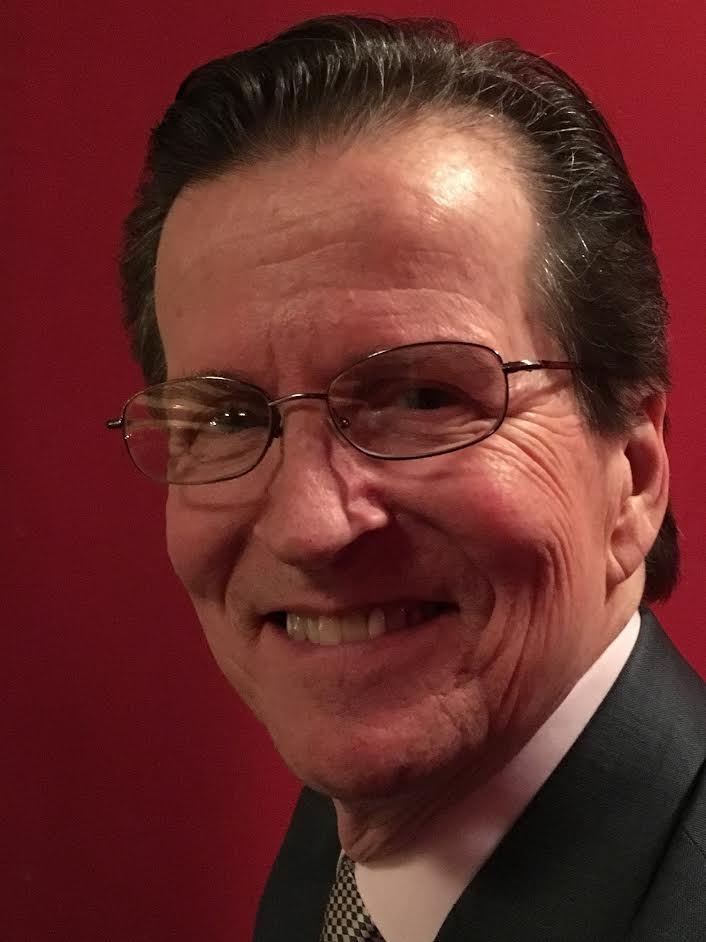
How is the patient-doctor relationship changing?
The historical relationship has been “asymmetrical” where the provider knew everything, the patient just had to be “patient” and accept what the doctor said, how he chose to say it and when. The notion that the patient had a right to know anything emerged as a very new thread in the historical tapestry of healthcare. A patient’s medical record is still considered the provider’s property, although the information belongs to the patient.
The relationship between the doctor and the patient is affected by the age of each, their expectations and the context of their interaction. In emergency or urgent care circumstances, the relationship is almost completely transactional, whereas in a more casual circumstance the relationships are becoming more interactive and less transactional.
The past decade saw medical schools teaching “empathy” and bedside manner. If this weren’t a glaring lack, why would the medical colleges add this to the curriculum? The UK and USA have formal rating systems based on patient feedback which rate doctors on their interpersonal qualities.
And wherever patient choice influences the physician’s earnings, you’ll find a far greater sensitivity to the patient’s experience and their willingness to recommend. Pathologists don’t suffer this customer-facing challenge, whereas obstetricians do, and impacts are remarkable. In the four decades in which I have been working in healthcare, I have witnessed a sea-change in attitudes by and among physicians in elective practices.
The Four Muskateers organising EPIC 2020 are an interesting collection. Apart from yourself, a Brit in Slovakia, a private clinic in Zagreb, and the number one hospital in the world, Cleveland Clinic. How did the partnership come about?
Ognjen Bagatin and I met at a conference in Washington DC several years ago, and I was immediately struck by his energy and willingness to engage at a far deeper level than most clinic owner / operators. Ognjen wanted to delve more deeply into the inner working of the markets, the motivations and obstacles, as well as the levers that make things work. He and I kept in touch last year, we had a conversation that revealed to us the central need for innovation in the behavioral and technological dimensions that produce the patient experience. We agreed to stay in dialogue and each of us conducted research into the organizations and conferences exploring these topics. We were surprised at how little there was in this domain and felt an immediate need and opportunity to fill the gap. Being passionately Croatian, Ognjen wanted to host an event in Croatia, Ognjen recruited Daniel Coulton-Shaw of Global Clinical Rating to participate in the organization of the Congress.
We agreed to focus on Europe, since these countries[İrving Stackpole] share the fundamental value that healthcare is the responsibility of the state. European economies and political cultures incorporate this assumption, in contrast to the USA, where millions do not have access to health insurance, and over half of personal bankruptcies are because of medical bills. We did agree, however, to invite leading experts from America to get involved. Ognjen immediately asked Tomislav Mihaljević, CEO of Cleveland Clinic if he were interested, and Tomas’ enthusiastic support was remarkable. We knew right away that we were onto a good idea!
Dubrovnik is the location – why did you choose it, and can you say a few words about Croatian health tourism and its progress?
Croatia is the scene of vibrant entrepreneurial energy! When Bagatin Clinic stepped up to organize this event, the country was a foregone conclusion, then Ognjen suggested Dubrovnik. Given the international reputation as a destination and its fame as the setting as Kings Landing in Game of Thrones, the scene as set!
Croatia is seeing a surge as a destination for health tourists. The reasons are parallel or overlapping with the reasons Croatia is a growing destination for travelers. Wonderful people, beautiful scenery, great food – all of these are compelling. Add to that, the excellent medical and healthcare providers and it’s easy to see why Croatia is growing as a health tourism destination.
Who should come to EPIC – what will they get out of it?
The audience for EPIC includes healthcare providers, (hospitals, clinics, dentists, therapists), companies serving the health & wellness markets such as technology providers and suppliers, as well as researchers and academics exploring leading-edge breakthroughs in healthcare technology and life sciences.
The content is highly varied and will appeal to a broad array of practitioners and innovators.
This Congress is targeting forward-thinkers, and those who are anticipating what the future holds. The person who thinks, “What if…” is exactly the audience who will benefit.
Those who attend will derive insights into technological and behavioral innovations that will directly impact the “patient experience” in healthcare. These insights may even surprise; this conference is an opportunity to “look around the corner” and see what’s coming.
And there will be many opportunities to network with thought leaders and successful healthcare business professionals from over 15 countries.
You have put together a stunning lineup of speakers- give us a flavour.
The speakers we invited, and those who asked to participate all shared our vision of the importance for the patient experience and innovation evolution. We were in dialogue with many of worldwide experts, researchers and authors, and while not everyone could fit this year’s program into their schedules, we are delighted with the variety and quality of the program presenters. And because of the importance of the topic, and the leadership position EPIC has developed in this domain, we are very confident going forward that we will continue to have top caliber faculty at this event.
Joe Sweet, and Mario Skugor from Cleveland Clinic in the United States and James Guttierez from Cleveland Clinic London will be sharing their practical experience engineering an environment and culture that supports a positive patient experience. Also, we’ll hear from Sheila Stevens and Rahul Kashyap from Mayo Clinic about their breakthroughs in managing the patient experience. Karen Jay, CEO of Planetree and Chris Graham, European managing director for The Picker Institute will talk about the challenges and advances in measuring patient satisfaction and engagement. In the technology domain, João Bocas, the “wearables guys” will review the recent breakthroughs in remote biometric sensing and data collection. We will hear from nursing and care professionals from Europe and the United States regarding the bedside innovations. Noted international travel writer and consultant, Doug Lansky, will talk about the experience of international patients who are seeking care far from home. On a personal experience level, we have invited “e-patient Dave”, Dave de Bronkhart, as well as a panel of former patients to discuss their experiences, and to answer questions from the audience.
The range of speakers is as broad as the subject, the “patient experience”. When you asked me to give you, “a flavor” of speakers at EPIC, it will be more like a smorgasbord than an entrée!
Importantly, we all believe that this is just the beginning. The future of healthcare will be driven by changes that are only just now beginning to emerge. This Congress, the 1st European Patient Experience & Innovation Congress is our attempt to “look around the corner” and to create an ongoing dialogue that will benefit providers and consumers.
You can learn more about EPIC 2020 from the official website.
To follow the latest in the Croatian medical tourism story, follow the dedicated TCN section.
Medical Tourism Accreditation and Croatia: TEMOS CEO Claudia Mika Interview
January 4, 2020 - TCN attended the International Medical Travel Journal 2019 conference, during which we caught up with TEMOS co-host CEO Claudia Mika to talk about medical tourism accreditation, the accreditation awarded to Bagatin Clinic, and Croatia.
Tell us firstly about TEMOS and the accreditation you offer.
TEMOS International Healthcare Accreditation is an international accreditation body located in Germany in Cologne, with 14 international offices worldwide. It started ten years ago as a scientific research project. I was working for a government research organisation and there was a funded government project together with insurance companies and assistance companies to define quality criteria for the management of international patients worldwide. And from there, we further developed. First we closed the project. As a government research project, you are not allowed to earn money with those products, so I was asked as project manager to do a spin-off. I learned how to write a business plan and how to do business, and we started. And since then we have been accrediting and certifying hospitals and clinics, and medical centres worldwide. Those who do treat international patients, medical tourists, and those who do not, we are also an accreditation body for those facilities who do not deal with international medical tourists.
How many clinics worldwide have the TEMOS accreditation?
We currently have around 65 accredited certificates distributed, from Colombia to Thailand.
Tell us about the process of getting accreditation.
The process is that, having agreed with the clinic or hospital that we would like to start the process together, our applicants are given online access to our platform. They get the standards and the self-assessment tools where they can do their own analysis. They get a questionnaire where we have translated all the standards into questions because we know that the language of quality is sometimes difficult to understand. We ask, do you have this, how are you doing that? This was we avoid the cost of expensive consultancy, as the client can learn by doing, it is like a self-learning and improvement tool. And, of course, we are responsive to any questions they may have, and they always receive an answer within 24 hours.
What is the success rate of application to accreditation?
We changed the system about a year ago, when we reviewed all the standards, and after this, the success rate was a little worse than before. We have three scores - passed, not passed, and passed on reservation. We always try to avoid the 'not passed' as it is frustrating for both sides. What we have seen recently has been an increase in 'passed on reservation.' This means that the organisation needs to show by means of a progress report that within a given timeframe, say 6-9 months, that they will successfully work on all the points. And that if they do, we can then confirm that they are compliant with our standards, and then we can delete the 'with reservation' and upgrade them to a full 'passed.'
I hear a lot of accreditations within the industry. How does TEMOS stand among them, and what makes it different? I assume that there are similar products out there?
There are maybe some similar, but none the same. Since we are ISQua/IEEA-accredited, of course we are competing with those accreditation bodies which are also accredited by ISQua/IEEA. But the accreditation by ISQua/IEEA means that you must fulfil these standards, but that you do not need to stop with these standards. So you can add additional standards, and this is what TEMOS did. So we are unique for some of the chapters and standards we have. For example, we implemented the International Patient Management, the complete process of the international patient department services, from the first contact from the patient until the follow-up. We also have a chapter called Sustainability in Healthcare Settings for organisations, which means that we ask about their contribution to the environment and carbon footprint. No other accreditation business has this as a chapter. We ask about legal aspects, ethical aspects in separate chapters, and this is what we have found important, especially in international patient management, to cover those standards. In this respect, TEMOS does not really have a competitor. The others generally only check what is happening with international patients, or with domestic patients. But the combination of domestic and international, that is not available from anyone else. A clinic gets the TEMOS accreditation, which is good PR and adds a layer of trust.
Are there any other perks to getting the accreditation?
Yes, indeed. As co-hosts of this conference, for example, all our network partners were invited, and many came. We also have the TEMOS Academy, where all partner clinics have access to education, to further development. We do have reference letters from assistance companies representing the health insurances. We also have an exclusive partnership with Diplomatic Council (DC), a United Nations (UN) accredited business club and think tank. They have more than 5,000 members worldwide. Only Temos accredited organizations receive an additional certificate "DCpreferred partner hospital/clinic/medical travel coordinator". We are always trying to extend the network to give further benefits once a clinic is accredited, because we want to offer much more than just the accreditation.
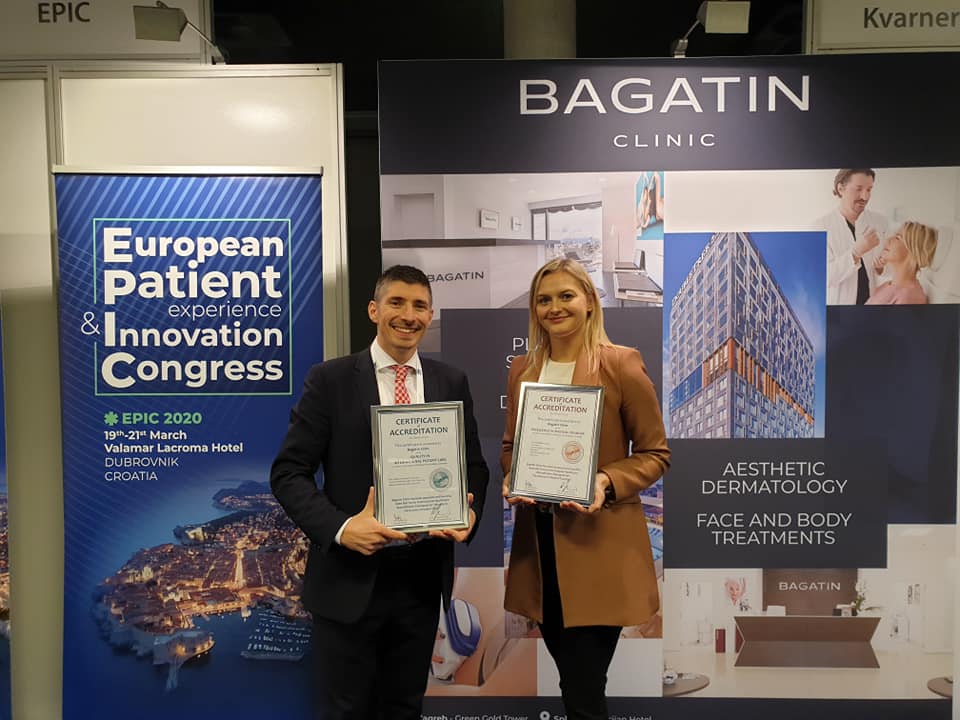
(Bagatin Clinic received the TEMOS accreditation during the IMTJ conference in Berlin)
Let's talk a little about medical tourism in Croatia and Bagatin Clinic, which was awarded the TEMOS accreditation during the IMTJ conference in Berlin. You have a much more global viewpoint that I do, as I live in Croatia.
I have known Ognjen Bagatin now for 6-7 years, from the international business perspective. And for me - totally independent of the fact that his clinic just got the TEMOS accreditation - he is clearly an ambassador. An ambassador for the business, and an ambassador also for Croatia as a country. He is a very engaged person with lots of experience, who is very motivated about what he is doing. He really wants to push the business, he wants to involve partners, he wants to network, he wants to cooperate. It is not that he wants to be successful for himself and his clinic, but he wants others to contribute and to benefit from what he is trying to build up. And what he is doing is amazing, and I appreciate what he is doing very much.
And where does Bagatin Clinic stand on the global stage? Are they players on the international stage?
Bagatin is definitely a player but also it is a best practices example for many clinics worldwide. When I talk to people who see his presentations as they comment on how amazing it is what they have achieved and how far they have gone in a short space of time, it is also amazing to see how much is invested in promotion. He is a best practices example because he has facts. He shows and he shares. He knows exactly what is going on in his clinic, and he shares this knowledge, and it is very much appreciated, especially in our business where facts are so important and not so many people share. This is why so many people are listening to him, because he is one of the rare ones who shares. And he is so far ahead that he really doesn't have to worry about others overtaking him.
Let's talk about Croatia. Where do you see the Croatian medical tourism industry, in terms of potential fulfilled, and where it could and should be?
I think Croatia has an advantage - and it really is a huge advantage - that Croatia already has a lot of tourism, as well as a great reputation for that tourism. So as a country it is regarded as neutral in terms of political issues, which can be an important issue these days, and it is famous for tourism, for its excellent food and wines. This is definitely a big advantage to promote Croatia as a medical tourism destination. I also think that there are some good initiatives coming out of Croatia. One of them is obviously Ognjen and his Bagatin team, and the other great example is the Kvarner Health Cluster. They have been working very hard for a number of years for the promotion of Kvarner as a health tourism destination.
Ok, but these initiatives are essentially private ones - one clinic in Zagreb and one health cluster on the coast.
Yes, Croatian medical tourism has evolved from private initiatives. Perhaps the government could and should do more to support it, but Croatian clinics have that international quality, as Bagatin has demonstrated for example. It also has a high-quality tourism offer as mentioned above and is a safe country. Clinics do not need the country to be branded as a medical tourism destination to succeed. If they have the quality and reputation, aligning to the current tourism traffic will enable them to succeed. There is very little in terms of government involvement in Croatia, but there are pros and cons. Croatia is a very small country, and the initiative is coming from those private players. Just because there is no coordinated government initiative, this does not mean that clinics cannot succeed. There may be no brand of Croatia as a medical tourism destination, but there is a huge brand of Croatia as a tourist destination, and that is something to build on. Because of this, and because Croatia is safe, if people see a famous clinic with best practices and international accreditations, they will go there.
You have also fallen in love with Croatia as a holiday destination.
I got to know Croatia through my business. I was invited to speak at conferences in Zagreb and Kvarner. I saw a bit of the country and I was very impressed. Very beautiful, with great people, food and wine. So I suggested to my husband that we go on holiday. So the first year we went to the islands of Cres and Vis, as well as Istria. So we asked our Croatian friends for recommendations, and they sent us to Hvar. We went there last summer, and we really enjoyed it. The weather was fabulous, and again, beautiful people, food and wine. It is definitely not our last time on holiday in Croatia. We love it.
To learn more about TEMOS, visit the official website.
For the latest from the Croatian medical tourism industry, follow the dedicated TCN section.
Cleveland Clinic CEO Tom Mihaljevic Supporting EPIC 2020 in Dubrovnik
December 30, 2019 - The impression interest in EPIC 2020, the first European Patient Experience and Innovation Congress introduces its latest high-profile supporter, none other than Cleveland Clinic CEO and President Tom Mihaljevic.
It has been a real education watching this build up from the sidelines, as well as a lesson in what can be achieved if you aim high.
My introduction to Croatia's medical tourism industry just over two years ago was through a meeting request from Bagatin Clinic CEO Ognjen Bagatin, who wanted to show me not only what his own clinic was doing, but also other leading healthcare providers, such as St Catherine's Specialty Hospital and Svjetlost Eye Clinic. I wrote my first impressions in Heath Tourism is Coming Home: Why Zagreb is the Next Big Medical Tourism Destination.
It is an industry I have followed very closely since, including interviews with several global experts who spoke at conferences in Croatia, who all concluded that Croatia had the potential to be in the world's top ten medical tourism destinations in Europe within 10 years if its stakeholders could unite.
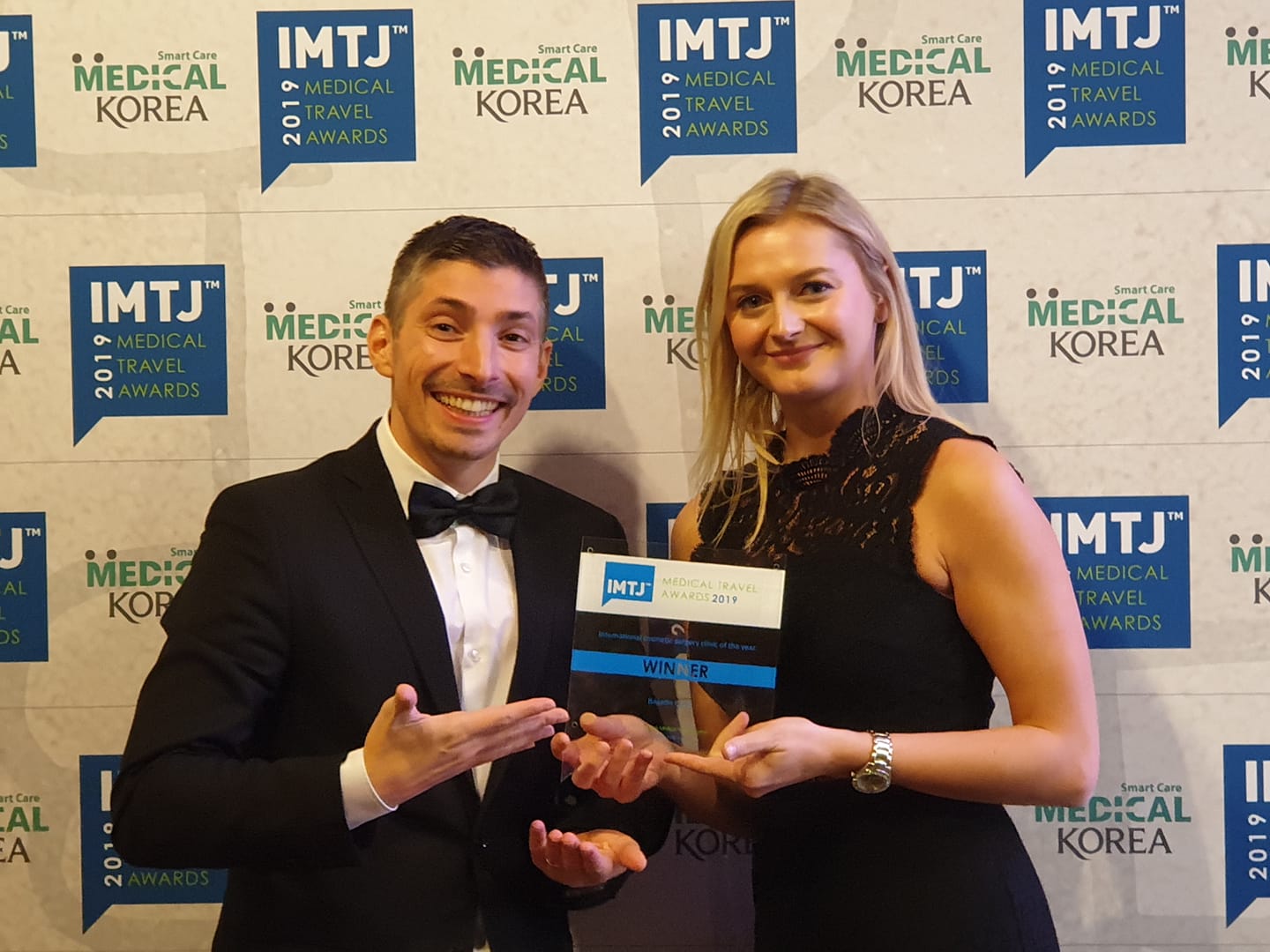
The success of St Catherine's (the first European partner for the Mayo Clinic co-sponsored OneOme pharmacogenetic RightMed test) and Bagatin has been a particular pleasure to watch - and it was an honour to be in Berlin earlier this month to see Ognjen pick up the International Medical Travel Journal 2019 International Cosmetic Surgery Clinic of the Year award for Bagatin Clinic.
Always an ambitious guy, I thought he had gone a little too far a few months ago when he showed me a flyer for a new conference his clinic was organising: EPIC 2020, the first European Patient Experience and Innovation Congress, to be held in Dubrovnik from March 19-21.
"We will have some really top guys, it will be quite a show and really put Croatia on the medical tourism map. You will see."
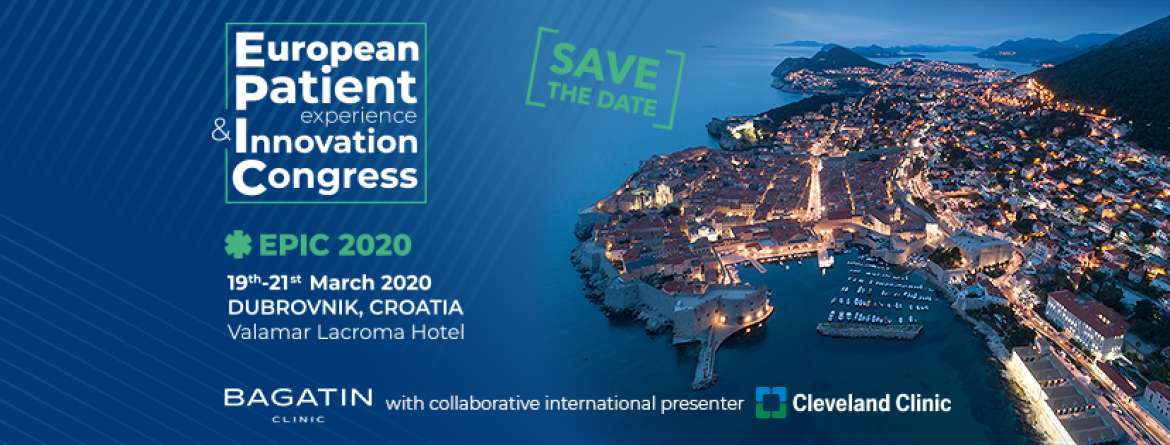
EPIC brings together some of the most influential physicians, MedTech startups and health professionals from Europe & beyond to the table to improve how your patients will experience healthcare in the near future.
As technology continues to help us achieve previously unattainable results in healthcare, join us for an insiders’ look at which technologies, ideas & innovations are improving the patient experience with some of the leading clinics & healthcare companies of the world so that you can stay ahead.
Bagatin has been true to his word, some REALLY top names are already confirmed as speakers at EPIC 2020. Three international speakers from EPIC 2020 collaborative international presenter, Cleveland Clinic, two from Mayo Clinic, the Disney Institute, the Editor-in-Chief of International Medical Travel Journal are already confirmed, with many more on the way. And then there are the video endorsements from supporters of the initiative who cannot make it.
A personal video message from Cleveland Clinic CEO and President Tom Mihaljevic! Mihaljevic is himself a Croat, and the Cleveland Clinic has been taking a more active interest in Croatia in recent years, following a visit to Cleveland by Bagatin in 2018, as Cleveland Clinic International Patient Experience Director Joe Sweet explained to me in an interview in Zagreb earlier this year.
And it was rather a pleasant surprise to find TCN nestled in the middle of the video with Mihaljevic's message.
To learn more about EPIC 2020, check out the official website.
To follow the latest from the Croatian medical tourism industry, follow the dedicated TCN section.
St. Catherine Hospital Scientists Confirm Long-Term Benefits of Stem Cells Therapy
Croatian scientists from the St. Catherine Specialty Hospital published an extremely important scientific paper in the Genes scientific journal, showing that the injection of the stromal and the mesenchymal stem cells into the knee joint shows long-term effects when measured 24 months after application.
The paper, which you can read here (full text of the paper is available if the reading of highly technical and scientific papers is your thing) is called "A 24-Month Follow-up Study of the Effect of Intra-Articular Injection of Autologous Microfragmented Tissue on Proteoglycan Synthesis in Patients with Knee Osteoarthritis”. It's a multicentric project, with the goal to confirm the effect of micro-fragmented fat tissue (stromal vascular fraction from microfragmented lipoaspirate, so-called SVF) intra-articular injection 24 months after application, in the patients suffering from osteoarthritis (OA). The project head and the corresponding author of the paper was professor Dragan Primorac, M.D.,Ph.D., and the other authors are St. Catherine's drs. Igor Borić, Damir Hudetz, Eduard Rod, Željko Jeleč, Andrea Skelin, Mihovil Plečko, Trpimir Vrdoljak and their partners from other Croatian scientific institutions drs Ozren Polašek, Irena Trbojević-Akmačić and Gordan Lauc.
The results of this study suggest that the mesenchymal stromal and the mesenchymal stem cells separated from the microfragmented fat tissue lead to the increase of the key molecules of cartilage (the so-called glycosaminoglycans (GAGs) two years after the application within the joint. Although the level of GAGs for 24 months after the application were somewhat lower than when measured 12 months after the application, in over 50% of the subjects (52 per cent) they were higher than before the treatment. The glycosaminoglycans (GAG) content in cartilage was measured by means of delayed gadolinium (Gd)-enhanced magnetic resonance imaging of cartilage (dGEMRIC), while the clinical outcome on observed level of GAG using standard orthopaedic physical examination.
Lucija Zenić and Denis Polančec from the Srebrnjak Children's Hospital helped the team in using the methods of immunophenotyping and flow cytometry to determine the types and the content of the SVF, determining the dominant populations of cells. At the same time, while examining the clinical results of the treatment of the knee with the autologous micro-fragmented fat tissue it was determined that 85 per cent of the patients report the significant improvement, as confirmed by the standard orthopaedic tests, such as Knee Injury and Osteoarthritis Score (KOOS) and Western Ontario and McMaster Universities Osteoarthritis Index (WOMAC), as well as pain intensity measurement - VAS scale.
Simultaneously, the team at St. Catherine's hospital wanted to report that Springer the publisher of the leading scientific magazine Nature published a chapter on "The Future of Cartilage Repair” in the book entitled "Personalized medicine in Healthcare Systems", in which the physicians from St. Catherine Hospital participated as authors. They've argued that the production of the bioactive molecules increases the improvement of a number of measurable parameters in patients, and because of that specific effect they would like the "Mesenchymal Stem Cells" to be renamed the "Medicinal SIgnaling Cells". The new findings in the modern regenerative medicine and the available methods of therapy, performed at the St. Catherine's Specialty Hospital give new hope to the patient, provide the newest breakthroughs in the treatment of this disease, but also position the Croatian health system powerfully worldwide.
Osteoarthritis is one of the most common health problems in the world with the increasingly ageing population, and some estimated say that currently, over 600 million people suffer from it. The treatment has been based on relieving the symptoms and implanting the endoprosthesis when it was determined that the cartilage can not be salvaged.
Prof. Dragan Primorac, M.D.,Ph.D., said that the results published in the Genes and the results published earlier will be changing some existing paradigms, and show the way towards a better understanding of the biology and the treatment of the osteoarthritis with autologous mesenchymal stromal and stem cells present within the microfragmented fat tissue. In osteoarthritis and in numerous other diseases, the future of medicine will be based on the integration of the principles of personalized and regenerative medicine into the clinical practice. I am happy that the Croatian experts once more proved their global excellence, and I'm especially happy that the results of our research have a great impact on the treatment of the patients suffering from osteoarthritis. It is clear that our results have an extraordinary significance in the development of the new diagnostic, therapeutic and prognostic algorithms related to osteoarthritis.
Inna Bergman on the Origins and Rise of Israel as a Medical Tourism Destination
December 8, 2019 - TCN caught up with Inna Bergman, CEO and founder of RTMC Medical, at IMTJ 2019 in Berlin to learn the fascinating history of the Israeli medical tourism industry.
TCN was in Berlin earlier this week at the medical tourism 'Oscars', IMTJ 2019, where Bagatin Clinic did Croatia proud by winning International Cosmetic Surgery Clinic of the Year. But it was also a chance to mix and mingle with the movers and shakers of medical tourism in other countries, including Israel. I am very grateful to Inna Bergman, icon of the Israeli medical tourism industry, for taking time in her busy schedule for an hour-long interview with TCN on the origins and growth of the medical tourism industry in Israel - it is a fascinating story.
Tell us firstly about the origins of the Israeli medical tourism story. When did it start?
Although medical tourism has only been officially recognised as an industry with the appropriate regulation in the last decade or so, it has been an established thing for much longer. Its origins date back to the 1960s, when private Arab planes from the Gulf states and other neighbouring countries would touch down at Ben Gurion Airport for treatment. In such cases, there were no issues with paperwork or visas. It was a practical arrangement. This continued up until the Yom Kippur war in 1973. The main medical reasons were oncology and specific surgeries.
Medical tourism from Arab countries began once more in the early 1980s with peace agreements with Jordan and Egypt, whose patients travelled to Israel for treatment. And then, in the early 1990s, came the biggest wave of patients - from the former Soviet Union, a market which today still accounts for about 70% of Israel's medical tourism industry.
The collapse of the Soviet Union allowed former Soviet subjects to travel, as well as to travel for medical treatment. Israel became a very popular destination at a time when many Soviet Jews were also emigrating to Israel. In just a few years, some 1.3 million Soviet Jews emigrated, and there was such a population shift in Israel that 25% of the country's citizens now spoke Russian, Ukranian and other ex-Soviet languages.
There were Russian supermarkets, restaurants and other facilities, and many Russians who needed treatment had Jewish friends who had moved to Israel. This meant that in addition to the excellent reputation of Israeli doctors, there was something familiar about coming to Israel - it was more like Russia in the Sun. Israel had a strong reputation for medical excellence, for new medical protocols and technology, but also for its mobile doctors who went abroad for fellowships to Europe and the USA. This helped to develop a network and image of Israel as an exceptional medical destination. The numbers grew rapidly, with the main reasons for travel related to oncology, cardiology, radiology, rehabilitation, and diabetes.
It was a crazy time, for it all just happened, and there was no system in place to deal with this influx. There was no Internet, mobile phones, credit cards, and patients struggled with basic things such as transferring money from Russia. It really was the Dark Ages, and few people remember it today, but we did what we had to do. I was a nurse in a big government organisation with an MBA in administration in hospital and case management. We simply learned as we went along, from helping patients doing the laundry to being there through the whole procedure. The term 'medical tourism' was still not known - they were simply patients who needed our help.
Other countries joined the market, for example Germany in 1995, and that ate into our market share, but the lack of visa requirement has been a big selling point for Russia. Cyprus, for example, used to be a big destination for Russians until the EU visa requirement came in.
And our international patients found a country very different to the one many envisaged. They came expecting to see camels in the desert and found instead a highly sophisticated Israel. The peak years of medical tourism in Israel were 2012 - 2015 before the Russian economy declined. At that point, about 40,000 patents were coming, but not for a few days, but for weeks, months, even a year in the case of a child oncology patient. When they left, many of them had become part-Israeli.
The market is still dominated by the ex-Soviet countries (70%), but new markets are now evolving, particularly in China and Africa - countries such as Ivory Coast and Nigeria. Where previously, richer African patients might have gone to Germany or the former colonial capitals of London or Paris, more and more are looking to Israel. Israel has a reputation as a hi-tech destination, one which is being fostered around the world by Israeli tech companies being very active internationally. it is opening new markets for Israel for medical tourism.
What are the main types of treatment patients travel to Israel for?
About half of our patients come for oncology. Some patients sadly leave things too late. If they had come a little earlier, they would have much better results, in some cases a full recovery. About 30% come for specific surgeries - spine and orthopedic trauma, while 20% come for general diagnostics and second opinions. People are losing faith in the opinions of local doctors and often come to us for a full check-up.
Technology is changing things, and there is a new niche in the industry - second opinion consultations online. Technology can now make MRI and CT scans available anywhere in the world, and Israeli doctors now deal with many patients from Europe, China and the USA for advice and a second opinion. The advance of technology allows for accurate recommendations from our doctors.
It sounds that the medical tourism industry in Israel is a lot more structured these days after that chaotic start. Tell us a little more about that.
For a long time, nobody collected statistics or even saw the potential of medical tourism or that it was anything more than a sporadic thing. the ministry started to get involved in the mid-1990s, and only in the last ten years has it formalised things. All the medical tourism goes through hospitals and now it is highly regulated. Investment is happening from the ministries of tourism, health and economy, as well as insurance and facilitator companies.
Since January 2018, all facilitators have been highly regulated, in addition to the hospitals. They must register with the Ministry of Health and adhere to a strict code fo ethics. As a result, many smaller companies have disappeared from the market. You cannot do medical tourism effectively without certification and standardisation. There was a high-profile case a few years ago of a facilitator who took money from a Russian patient, did not meet him at the airport and just disappeared. Such things can destroy a reputation, and they are no longer possible due to the high regulation. Hospitals are not free to do what they want with medical tourism, they can only do what the Ministry of Health allows. The ministry regulates, for example, how patients are received, invitations, the treatment plan, and who will meet and treat the patient.
Is there any negative backlash that foreign patients are taking Israeli hospital beds?
Yes, we have had these situations, but mostly this is a matter of politics rather than an actual problem. If you look at the real numbers in an intelligent manner, you will understand that this is not an issue. A mid-size hospital, for example, will see 150,000 Isreali patients a year. The same hospital will see about 1,500 international patients each year, about half of which are not hospitalised - they come for consultations, MRI scans, or second opinions.
I was surprised that you did not mention dental and IVF treatment in your medical tourism breakdown. I would have thought Israel would be strong and competitive in both.
Israel is very strong in dentistry, but it is mostly conducted through private practice. Due to the way that our medical tourism is structured, official medical tourism only counts if it is through hospitals, not in private practice. And so, unlike most countries in the industry, we do not count dental tourism as official medical tourism. Dental tourism from Russia in particular used to be more significant than now due to their own emerging industry, higher prices in Israel, and increased competition elsewhere.
Regarding IVF, Israel is VERY strong in this department. Indeed, in May 2012, the New York Times declared Israel the IVF capital of the world. One thing you should know is that IVF treatment is free and unlimited for Israeli citizens, covered by insurance. We had one case recently of a 45-year-old Israeli woman who gave birth to twins - a boy and a girl - after 20 unsuccessful cycles. Family and children are very important to us. Hence we have the highest number of IVF treatments in the world, some 5,000 cycles per 1 million inhabitants, a crazy number. Only now are we talking about limiting the age of the woman.
Our IVF treatments are available to international patients. Interestingly, we have a large sperm bank, and Chinese patients in particular are interested in Jewish sperm donation, as they value the strong genes which result. The government also permits highly regulated imports of egg donations, so there are many possibilities. So far this year, we have had six live Chinese babies born.
Israeli doctors are at the forefront of progress and innovations in medicine, in medical technology and pharma. Israeli doctors actively participate in various Israeli and International multicentre studies, and the number of Biotech companies in Israel is growing constantly.
Tell us about Dead Sea treatments - is this a gimmick, and is it part of your official medical tourism?
No, it is not a gimmick, and it is also not part of our official medical tourism, as it is more related to spa treatments. But we have excellent results for skin treatments, and many patients have been coming since the 1960s, often twice a year in May and November when it is not so hot. They take regular mud and salty water treatments over a period of 3-5 weeks, and the results are excellent. As this is not done via hospitals typically, it is classified more as regular tourism.
And finally - and perhaps I should have started with this - who is the incredible Inna Bergman, and what is your place in the Israeli medical tourism story?
I was born in Moscow and moved to Israel as a child just after the Yom Kippur war in 1974. I am a nurse by training and worked most of my professional life in intensive care, first in paediatrics, then in cardiac. I got a Masters degree in Boston in public administration in hospitals and case management. I am a mother of two and grandmother of five. When the international patients came in the 90s, I was managing the whole process of their stay, from arranging the doctors and consultations to their travel arrangements and laundry. I was a public servant until 2009 when I retired and opened my own clinic with my beliefs and philosophies on how all this should work.
My department was the first official medical tourism department in Israel. Nobody knew how to do things or even what to do. Back in the mid-1990s, I wrote the first regulation sheets. Now everyone works with these, but back then there was nothing. I put in a recommendation to the Ministry of Health on how to regulate the industry, and the need for accreditation for facilitators. Years went by, and I thought that my work was lost in some pile of papers on an official's desk, but my recommendations were finally accepted and put in motion, and now we have a State law for medical tourism. I am very happy that this exciting market has gone from chaos to regulation.
Inna Bergman is the founder and CEO of RTMC Medical, and you can connect with her via the official website.
For the latest from the Croatian medical tourism industry, follow the dedicated TCN section.

